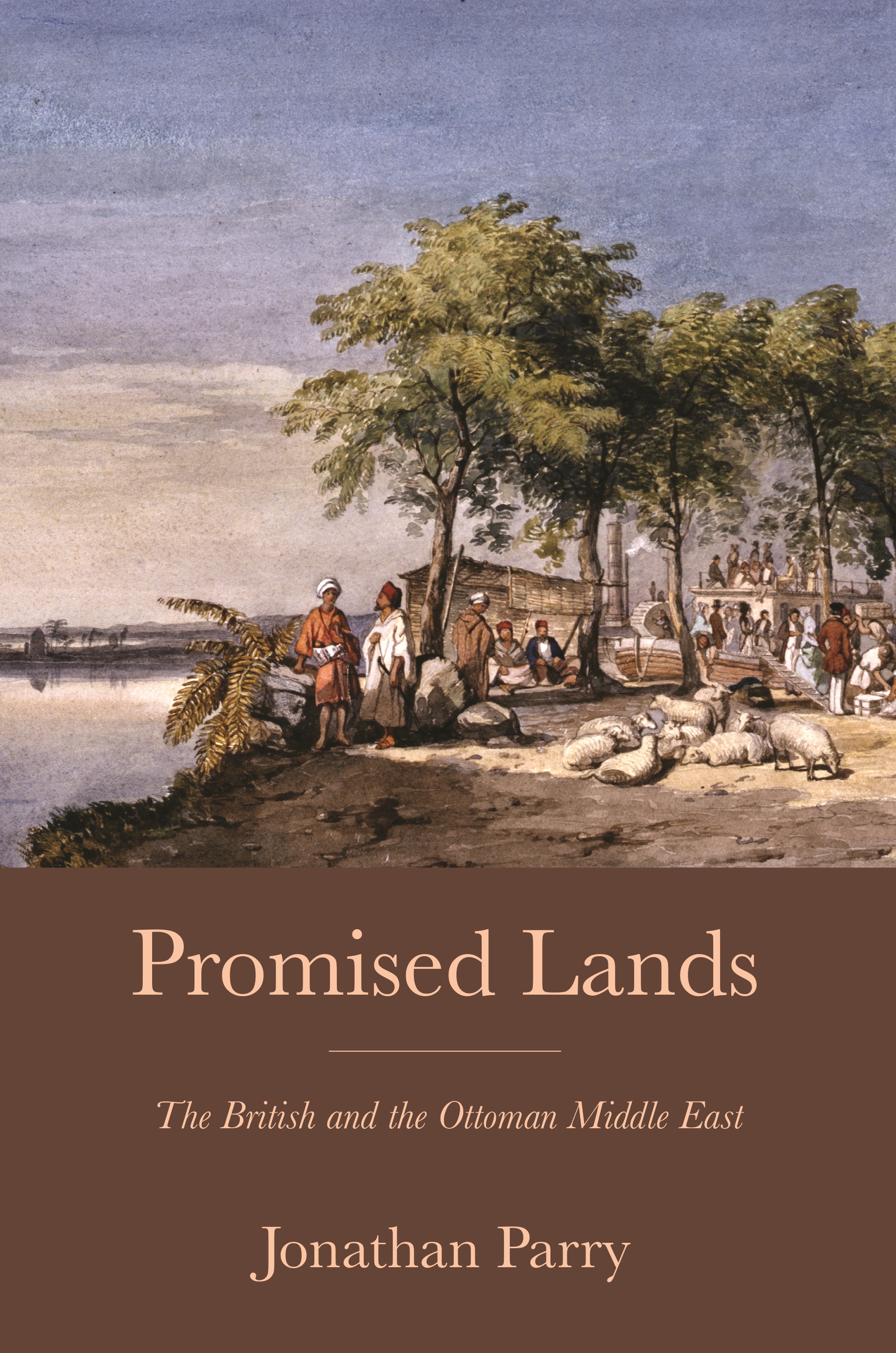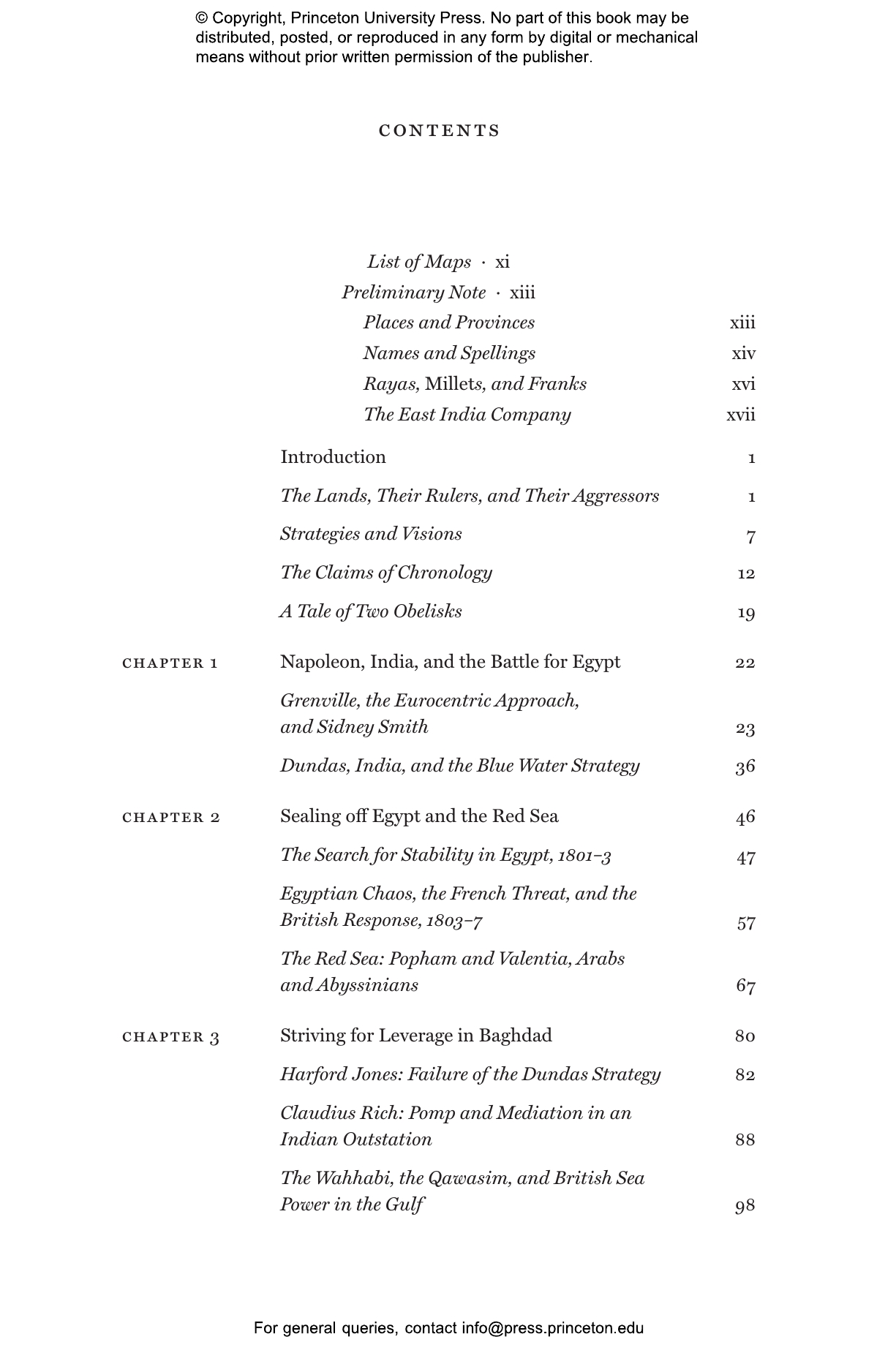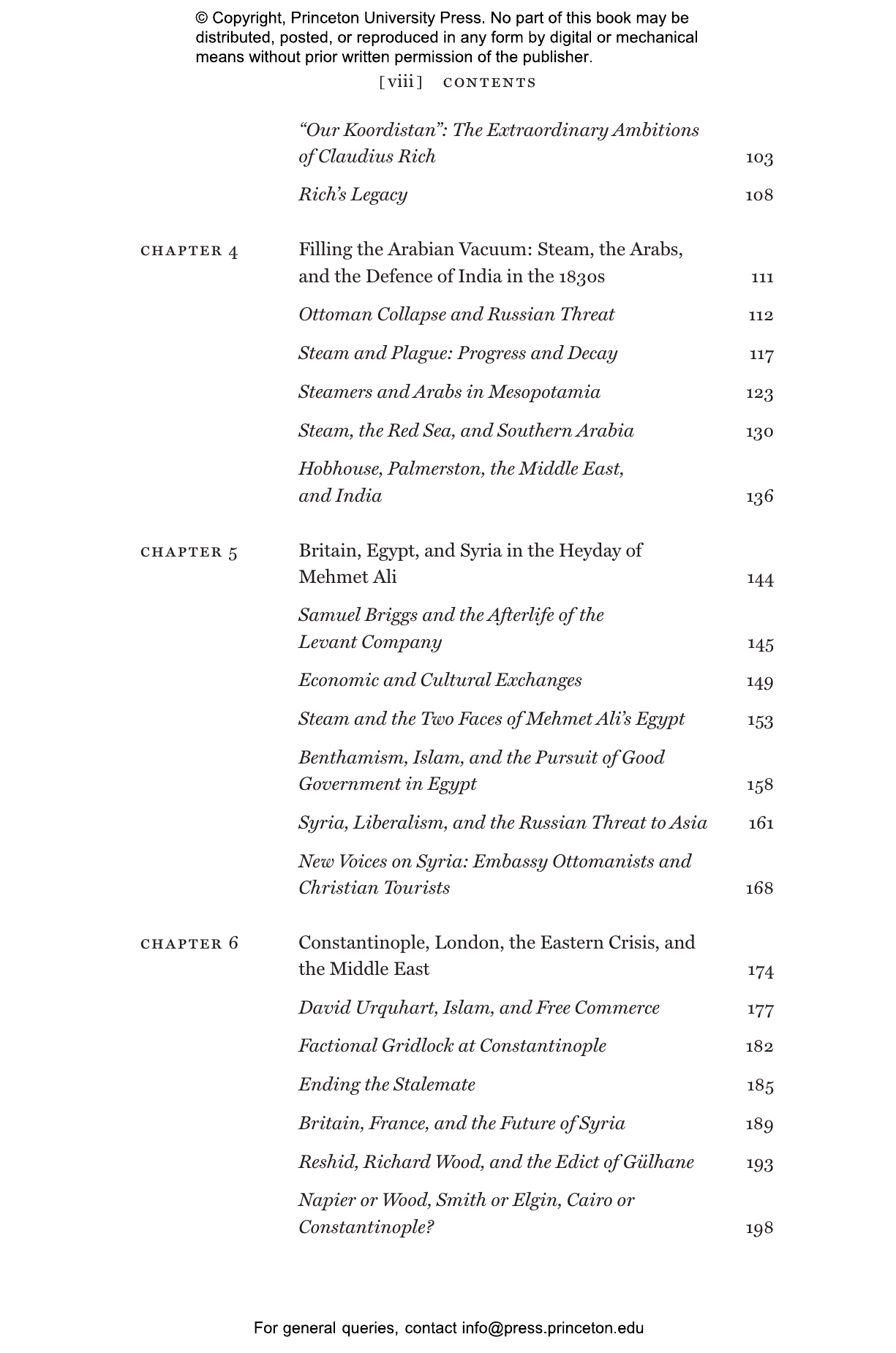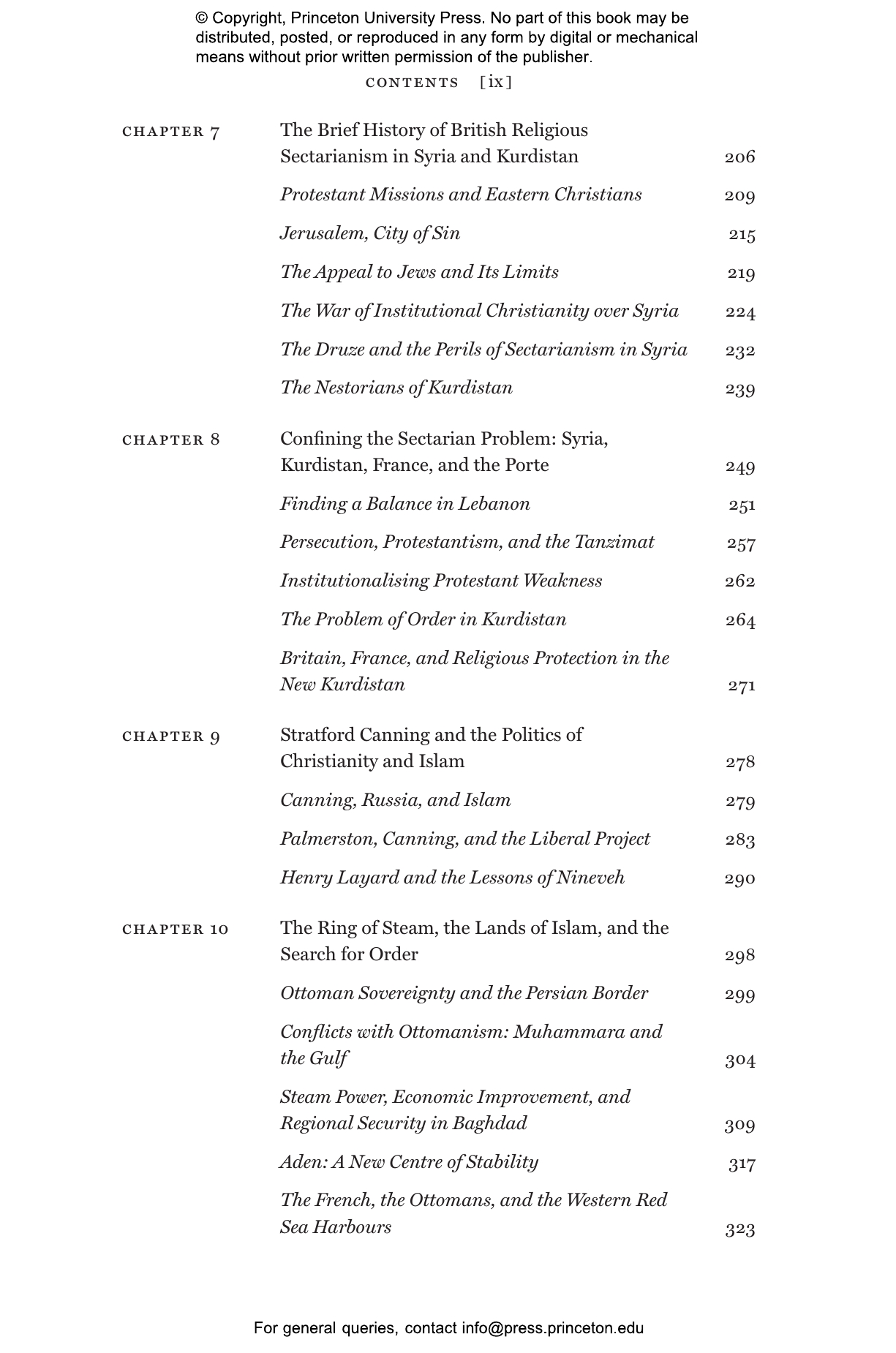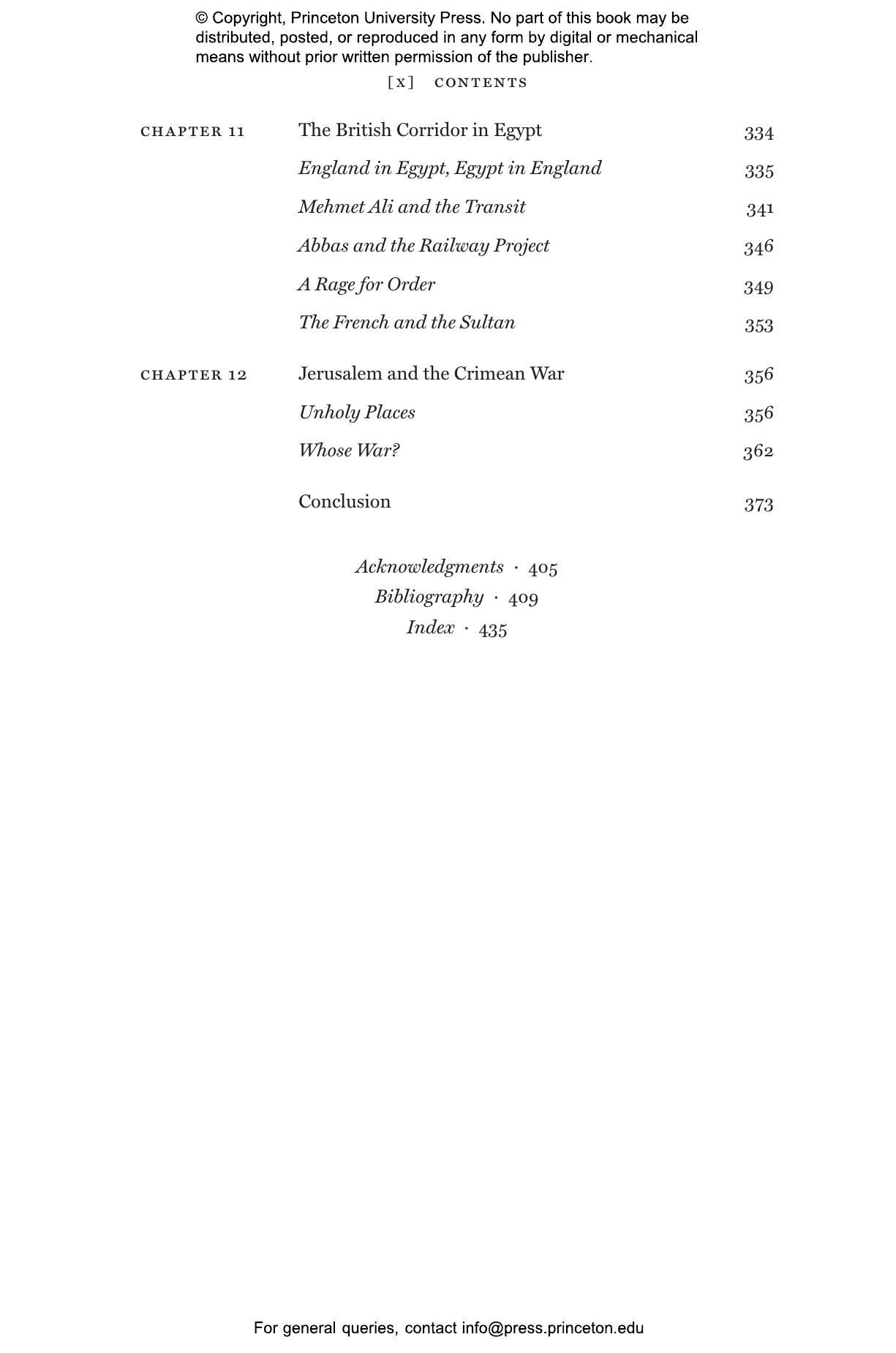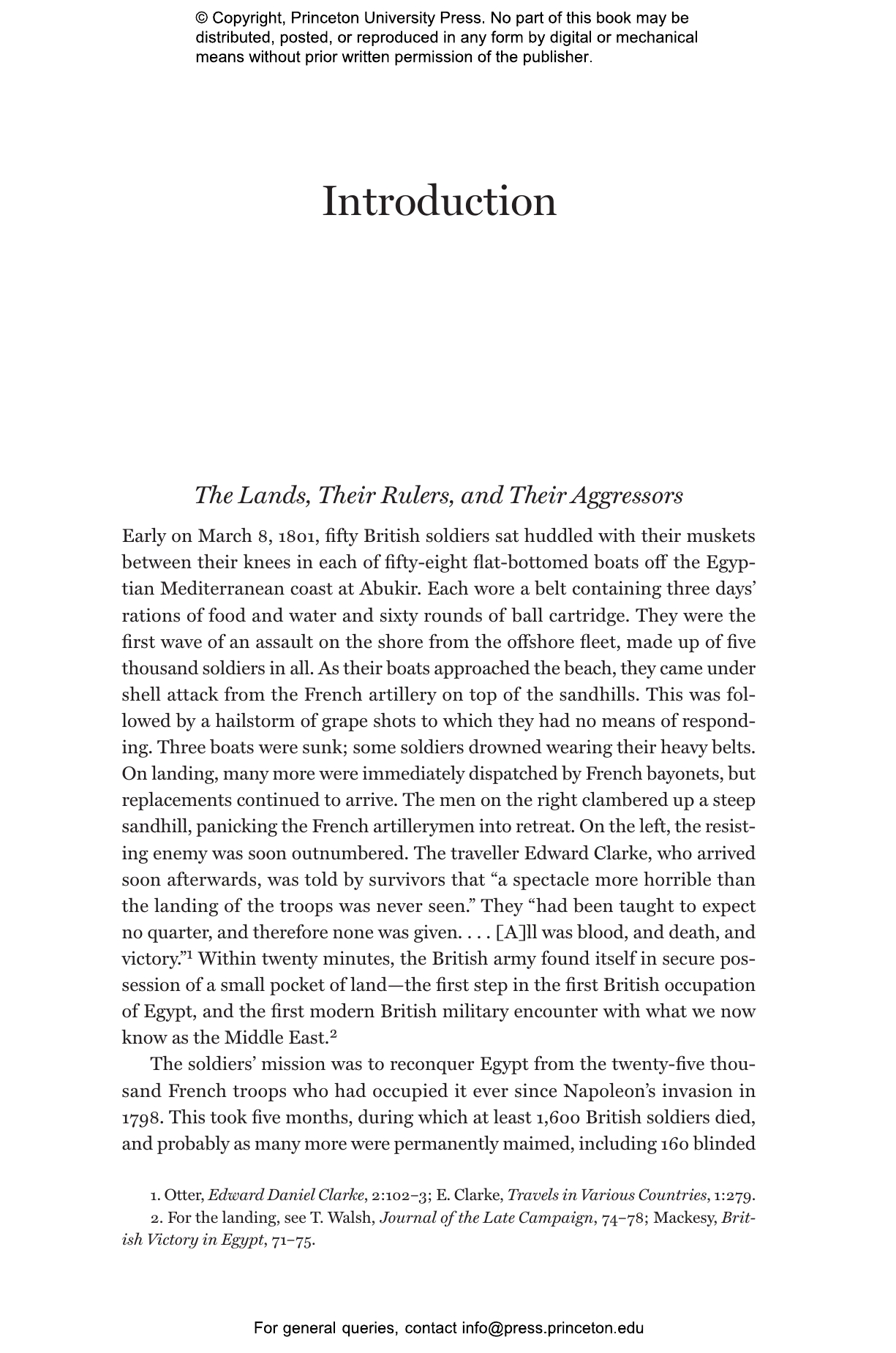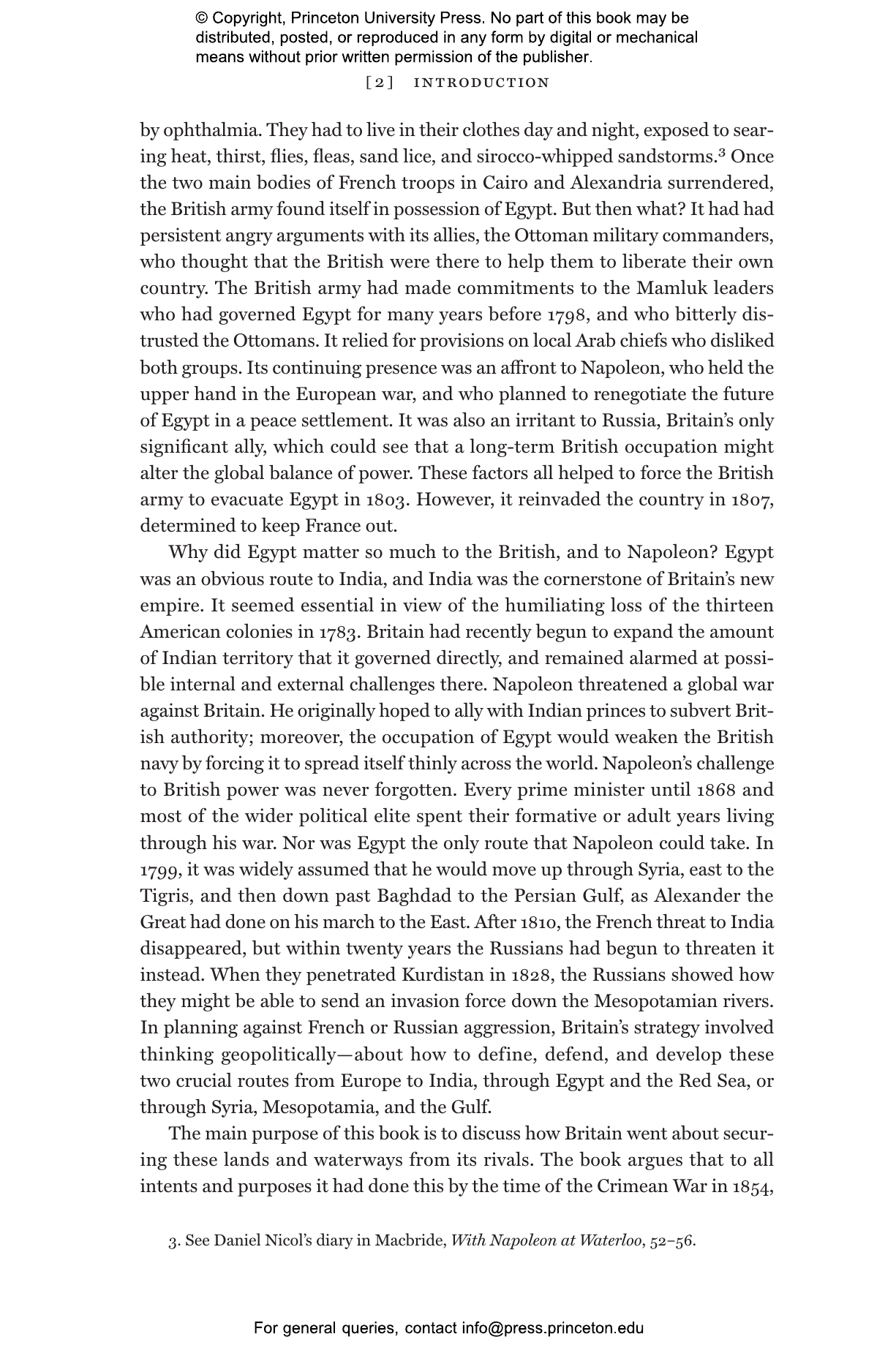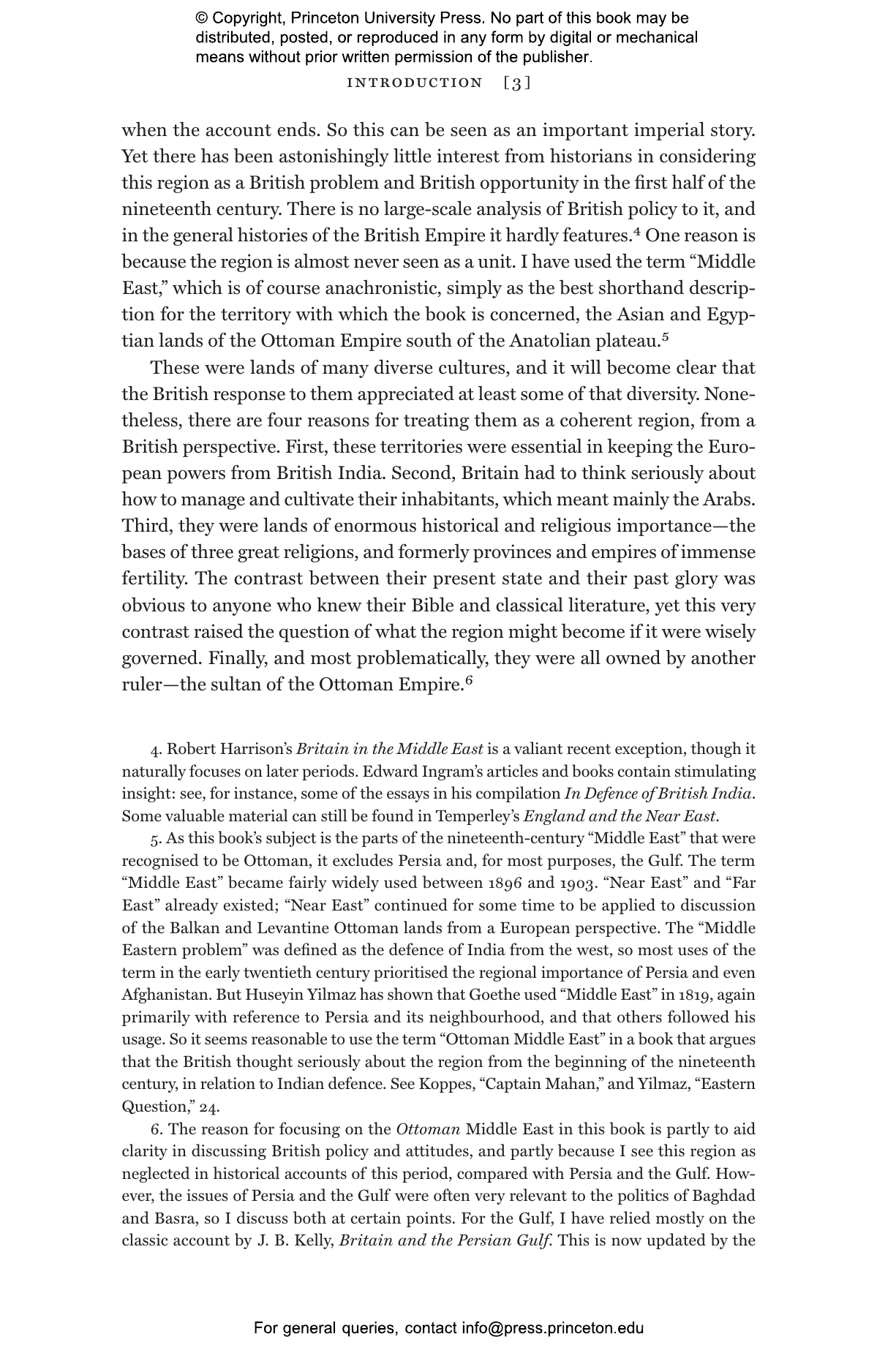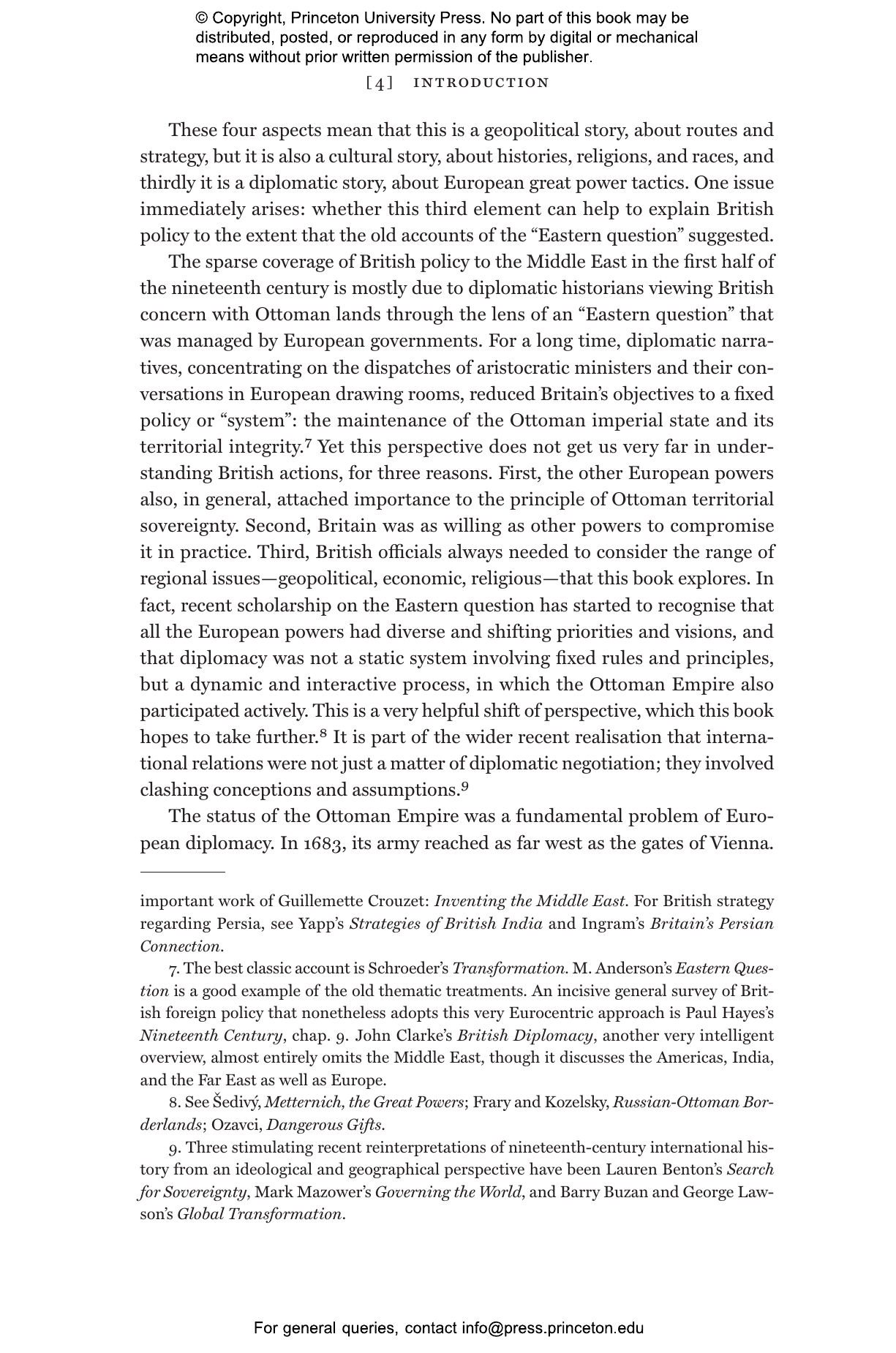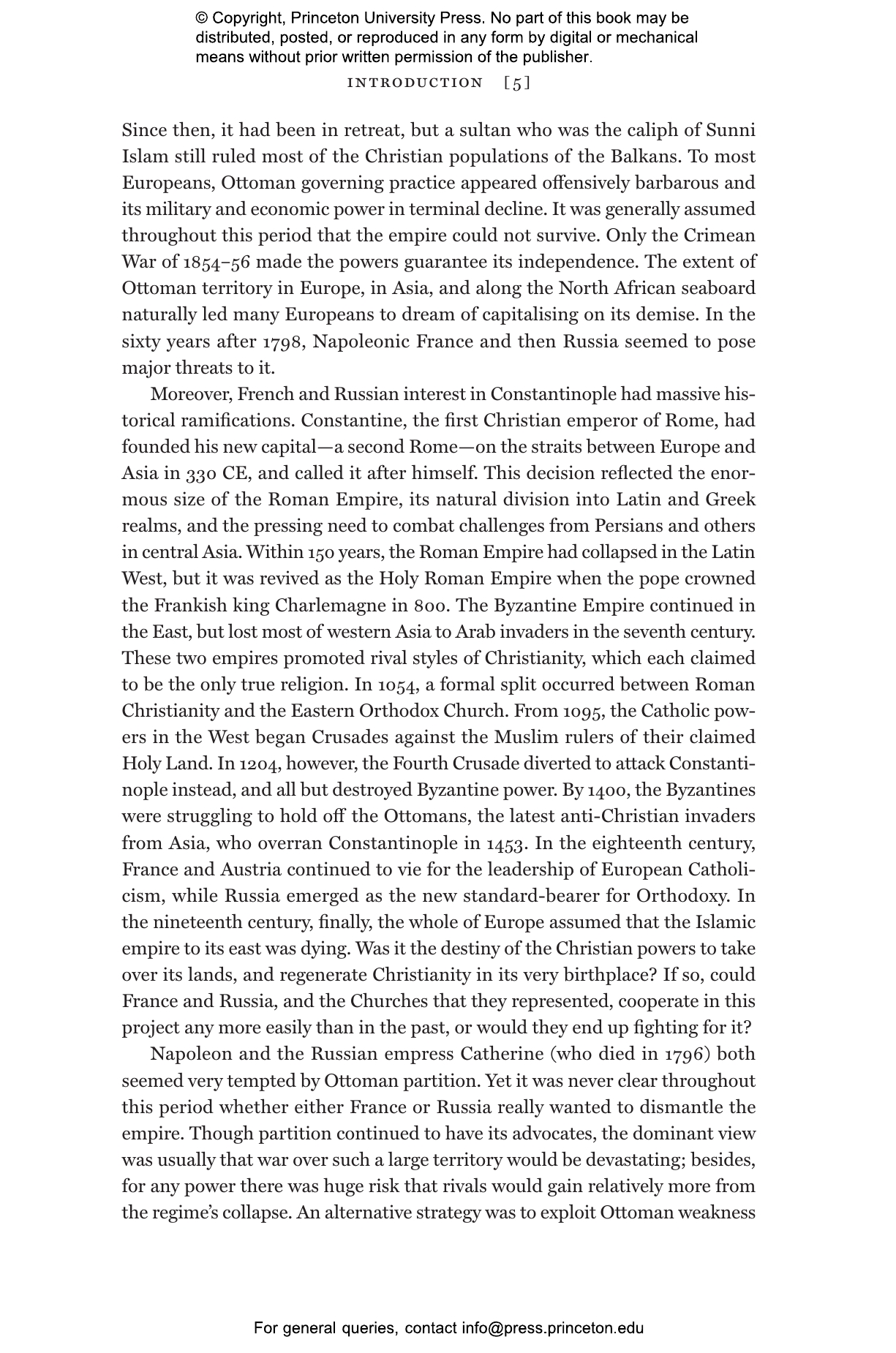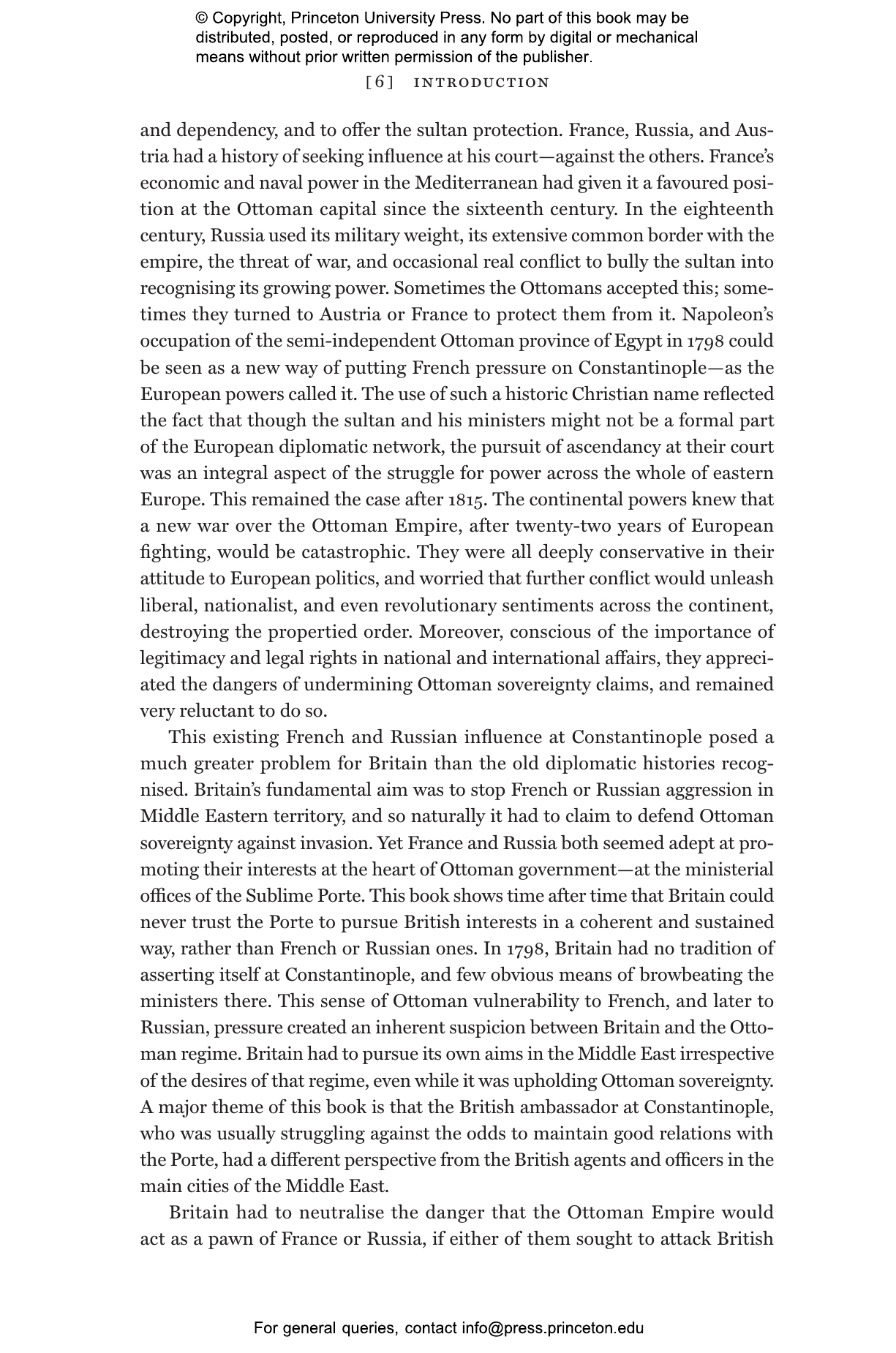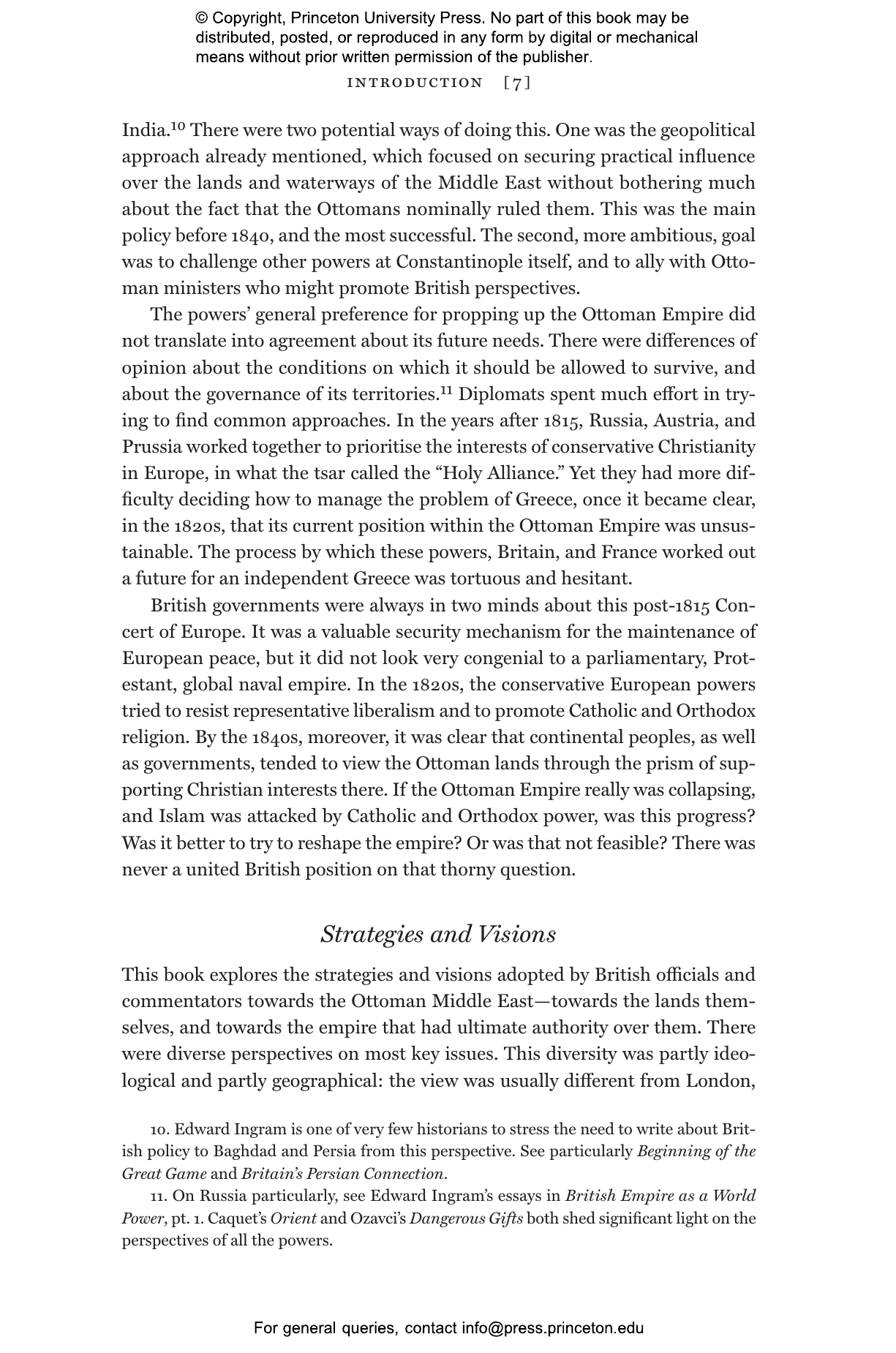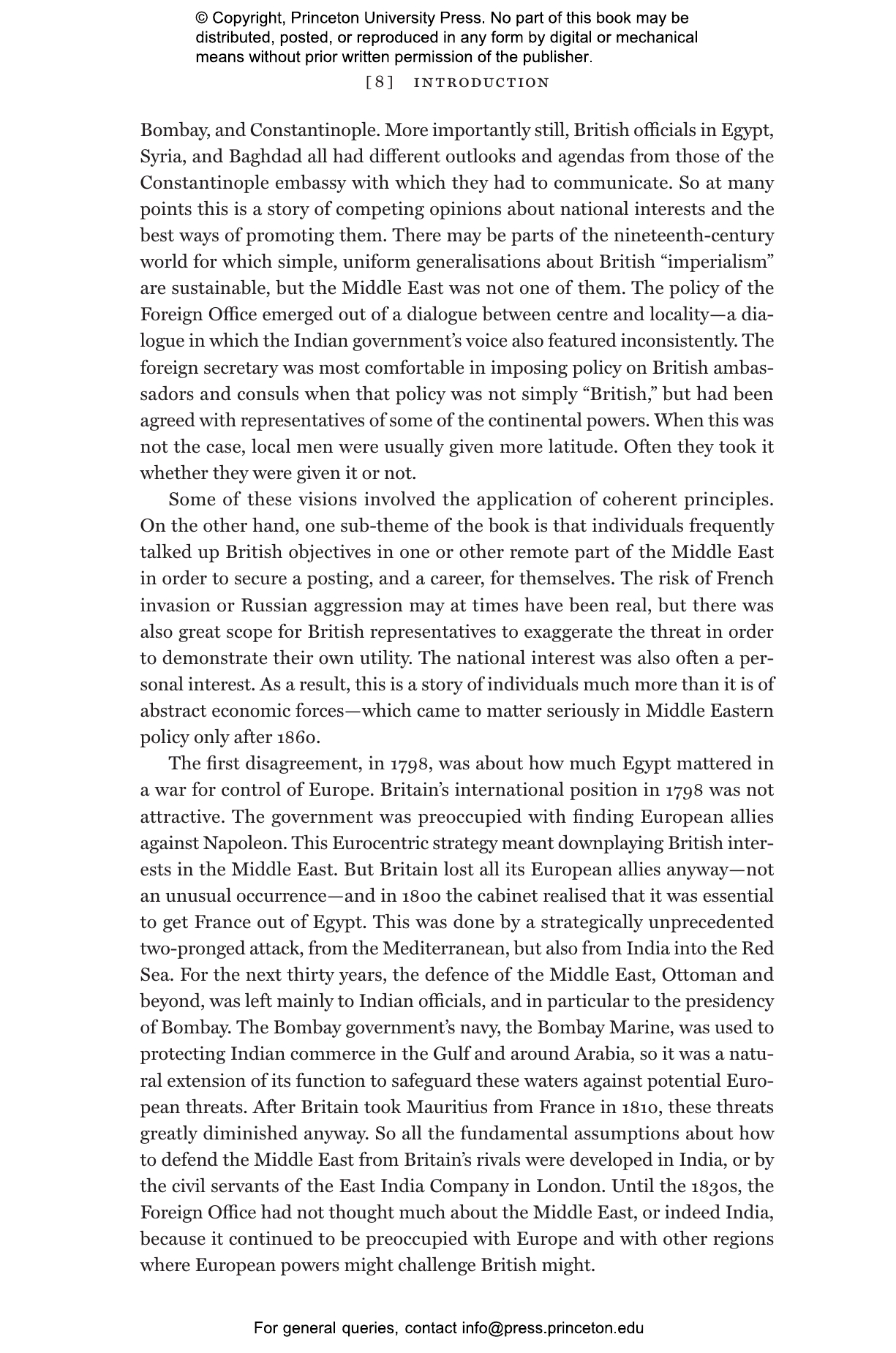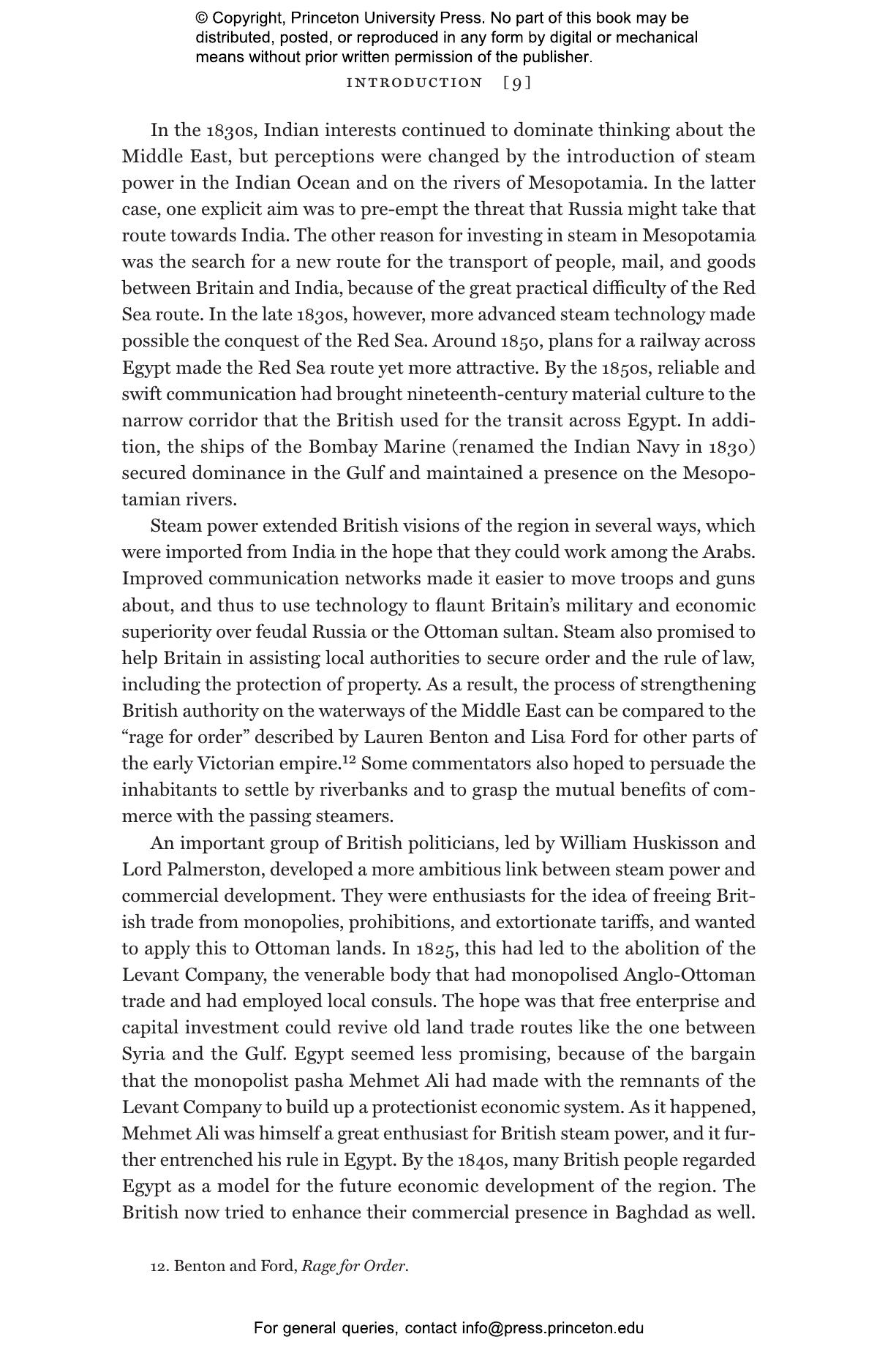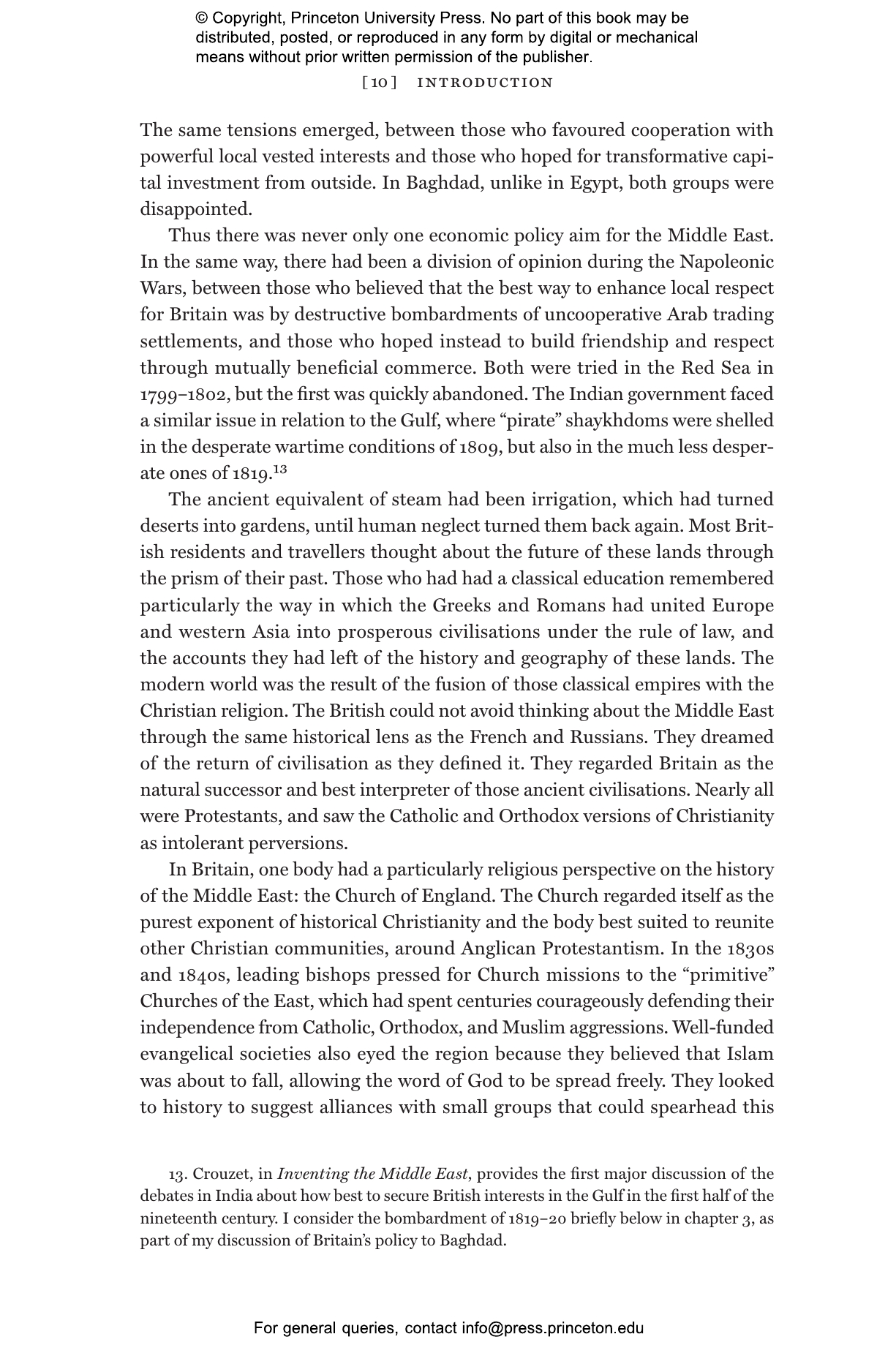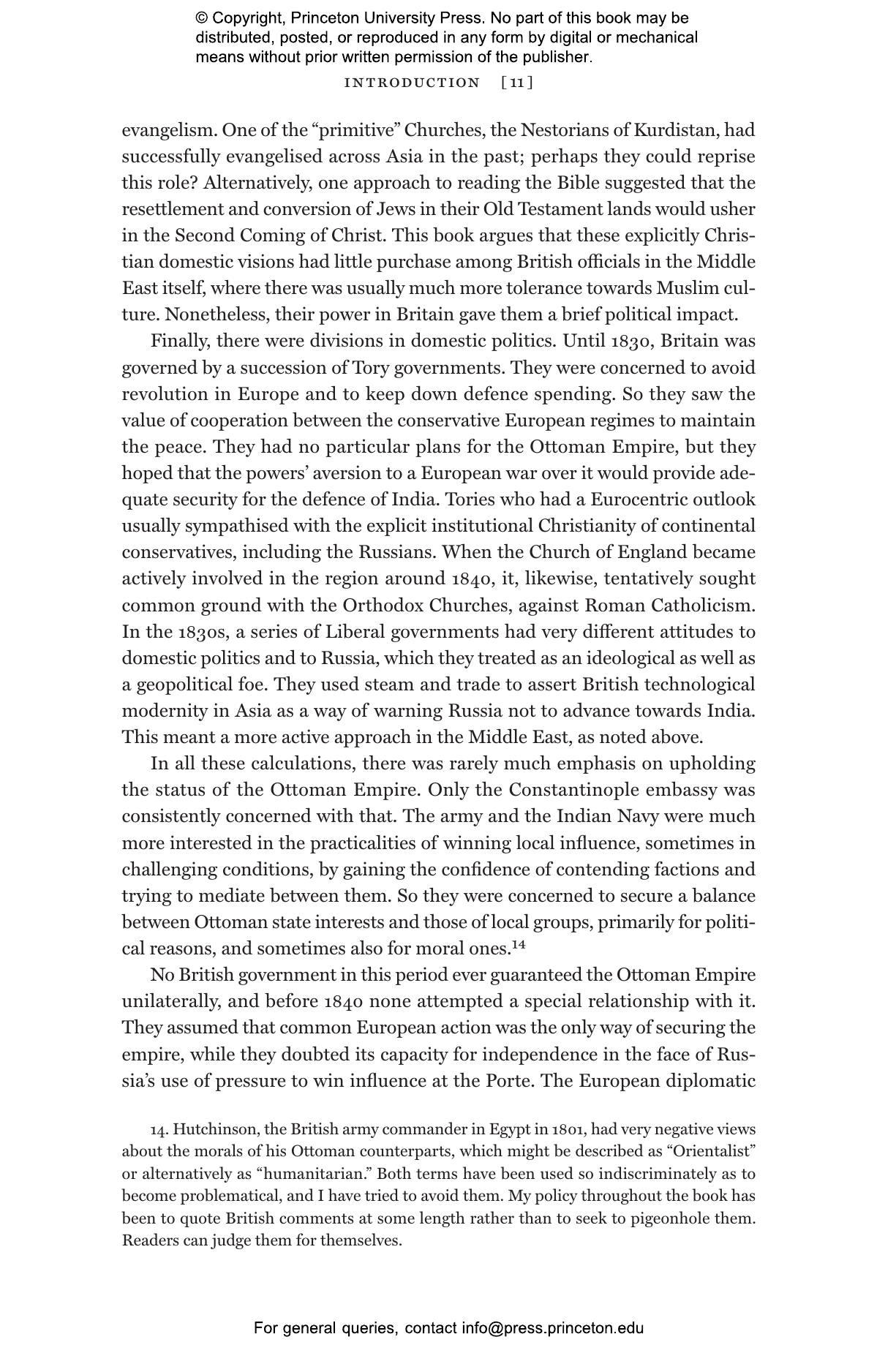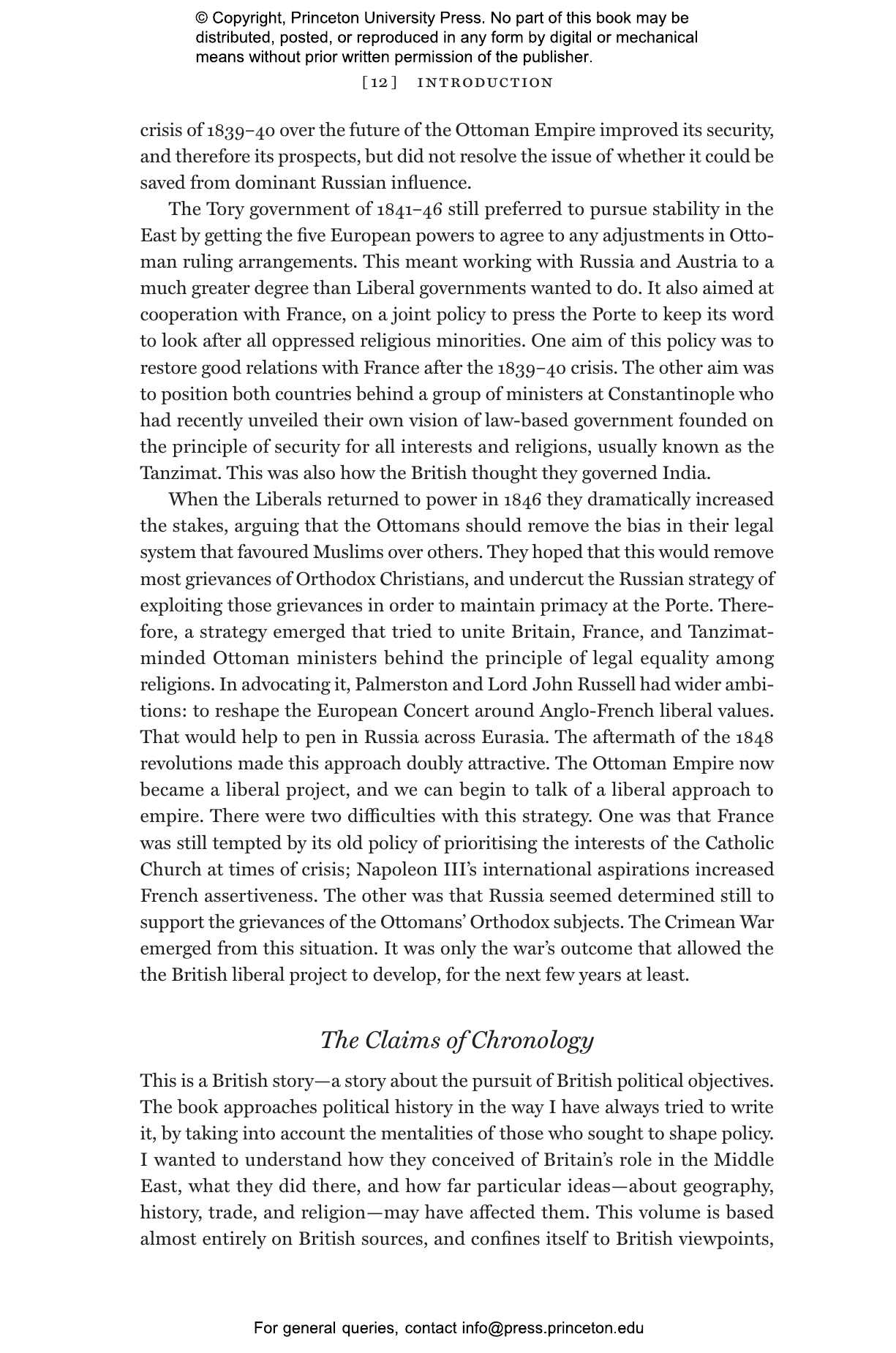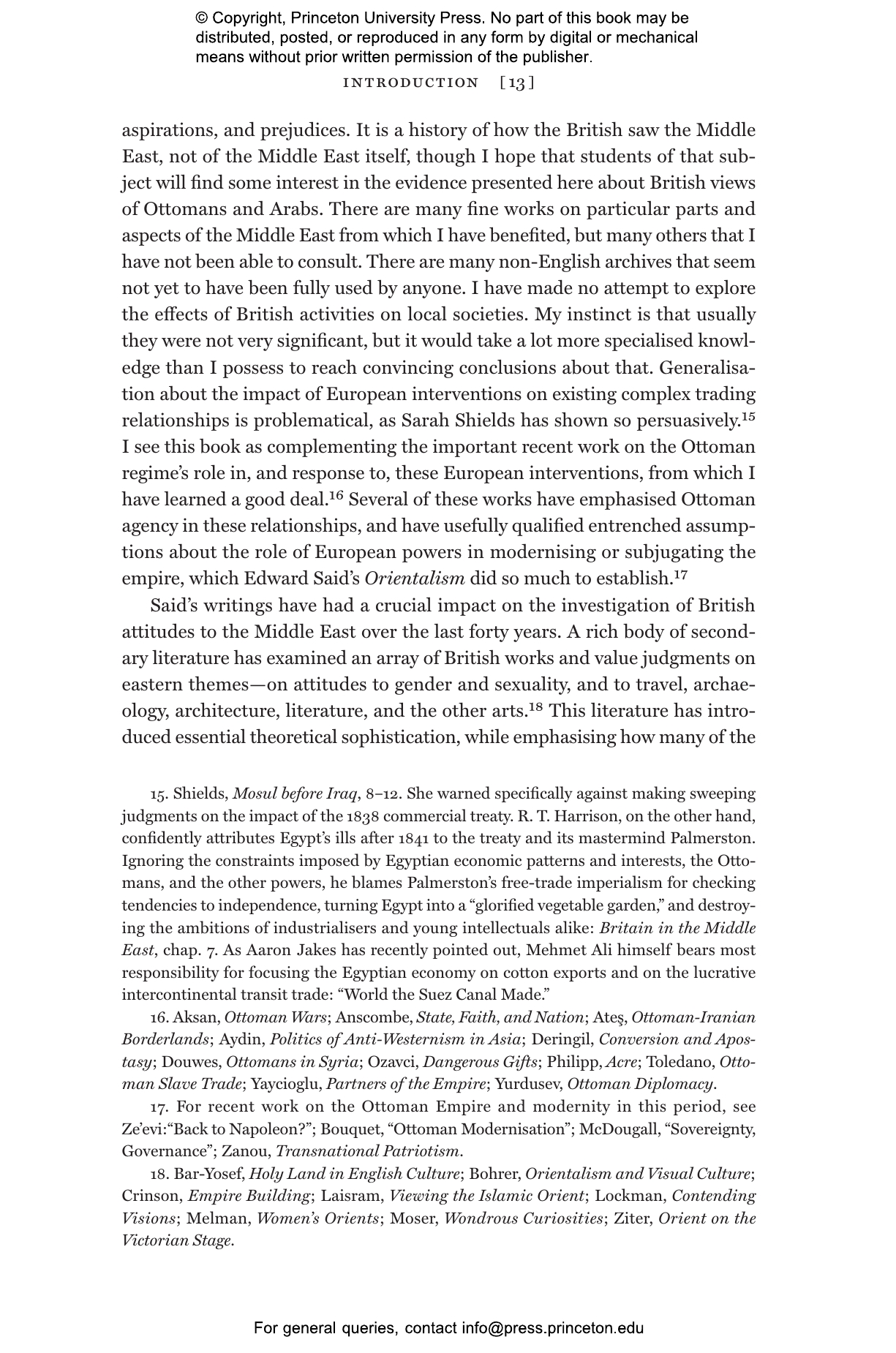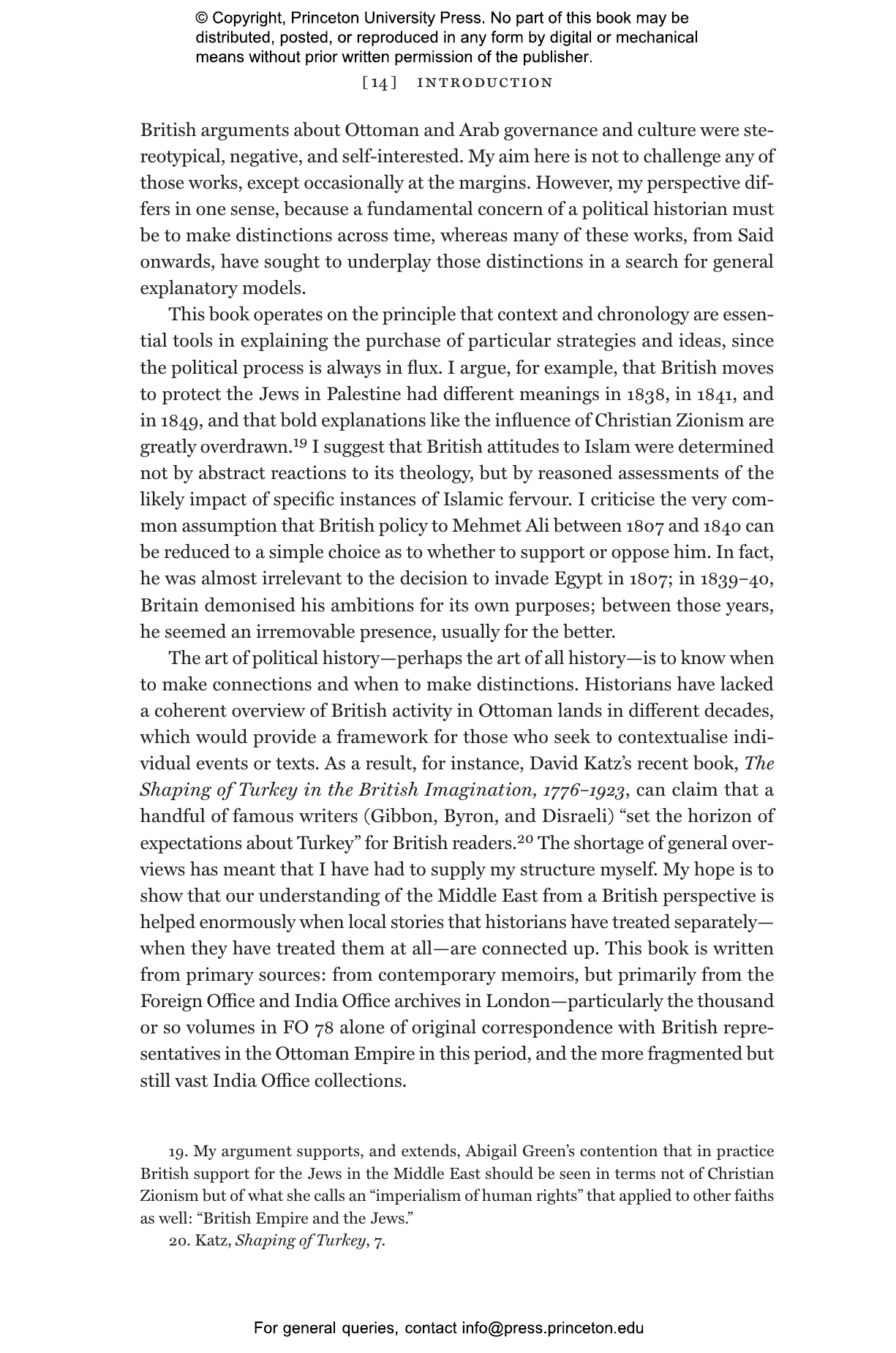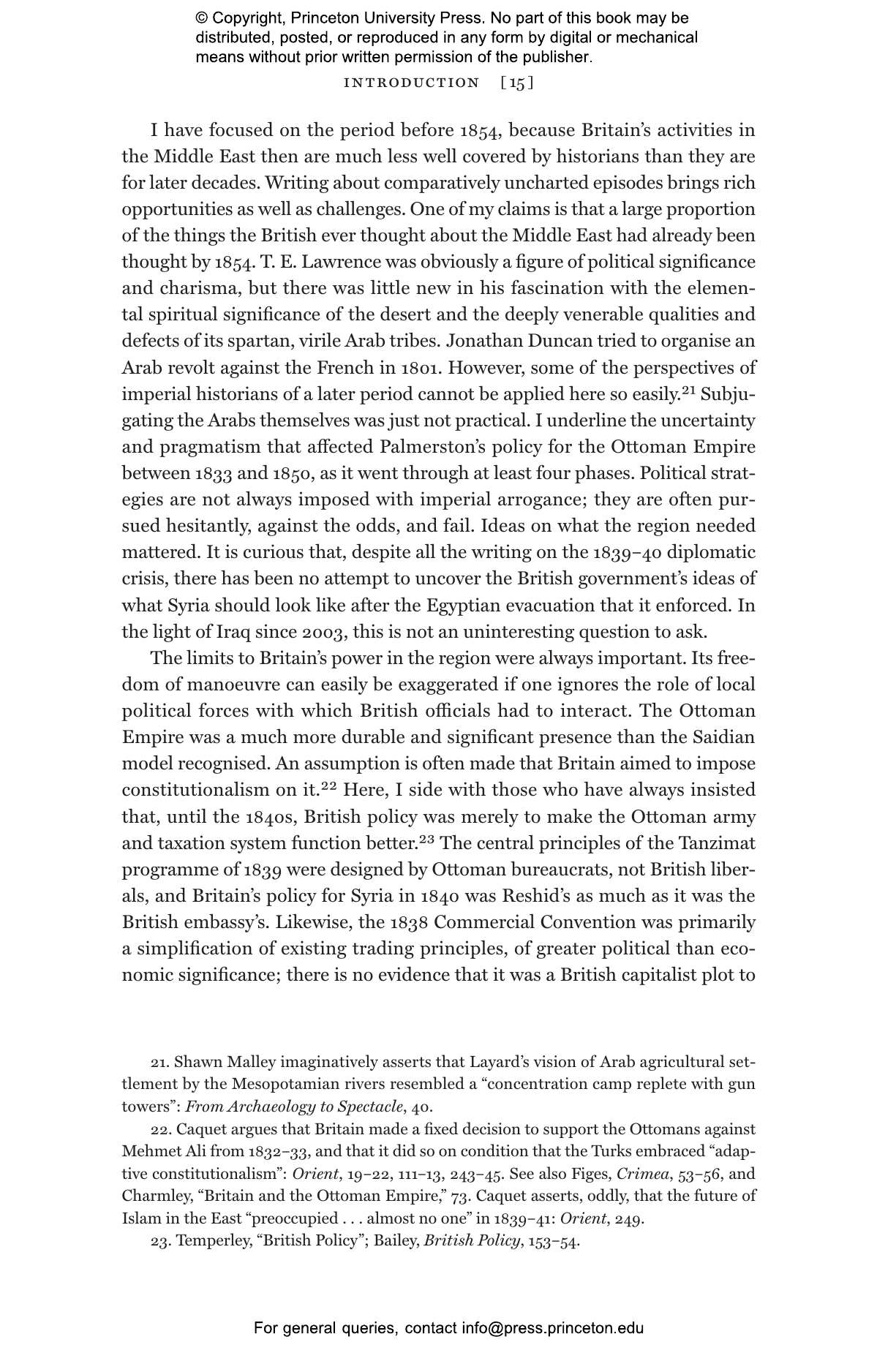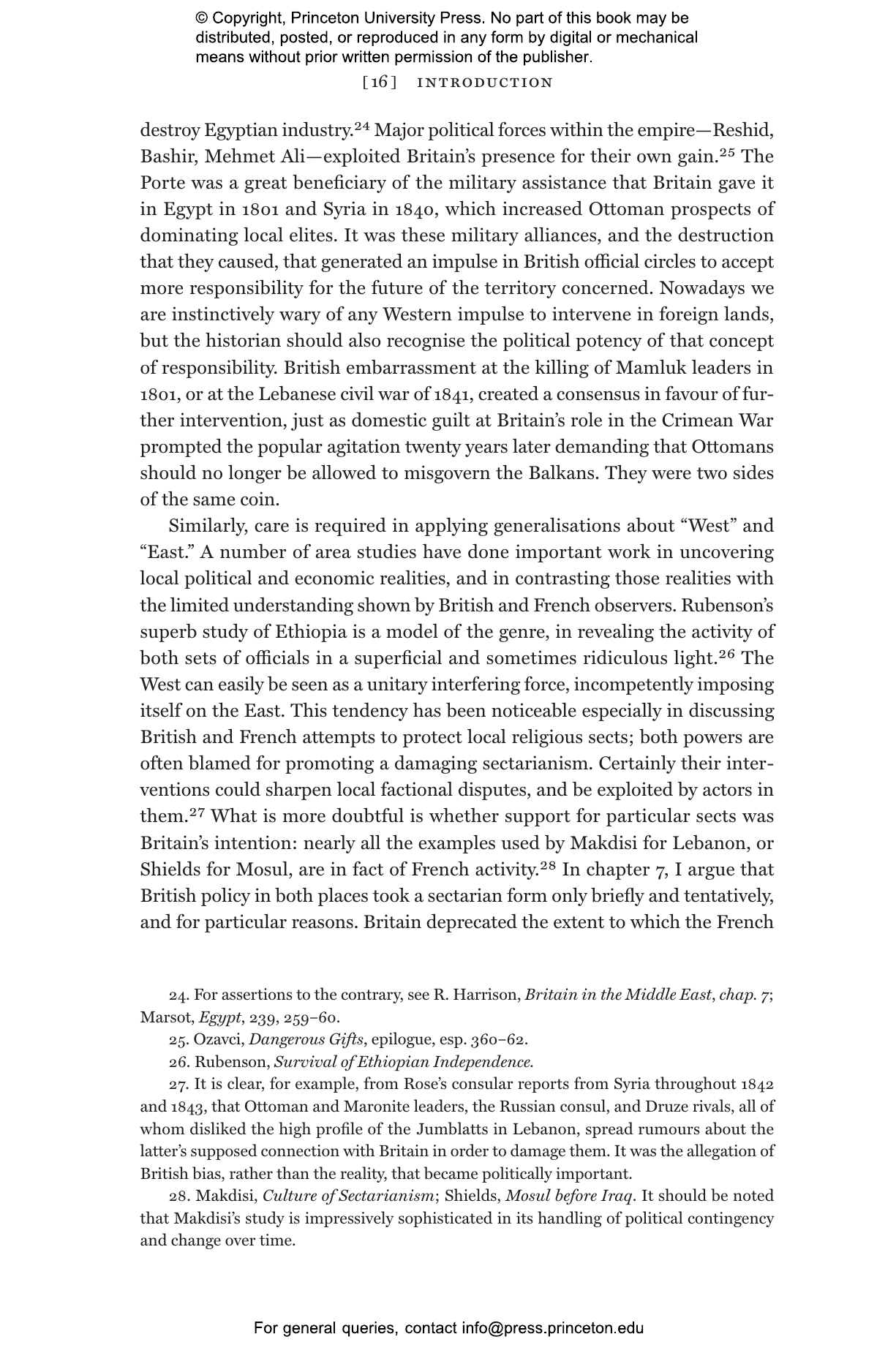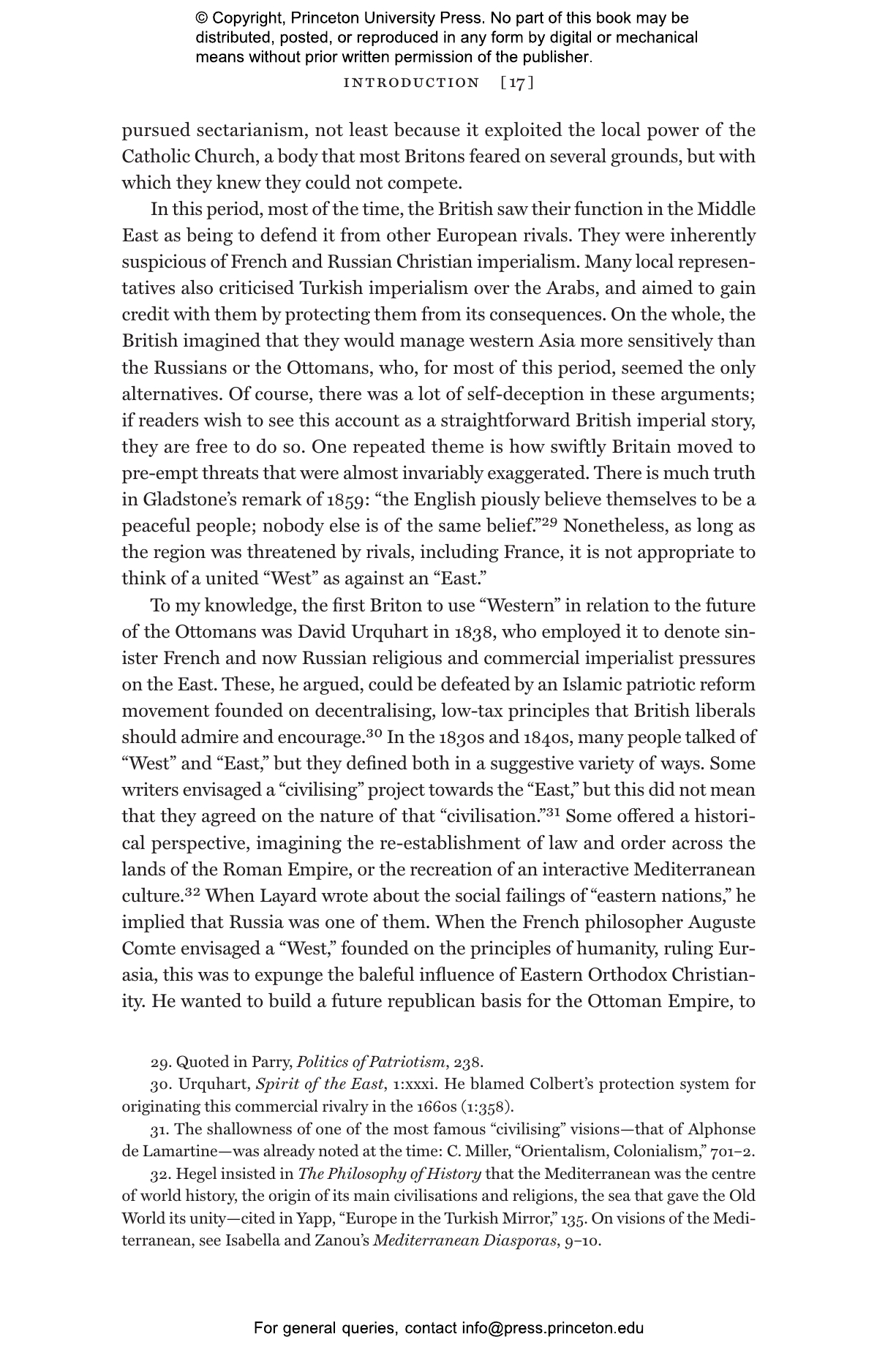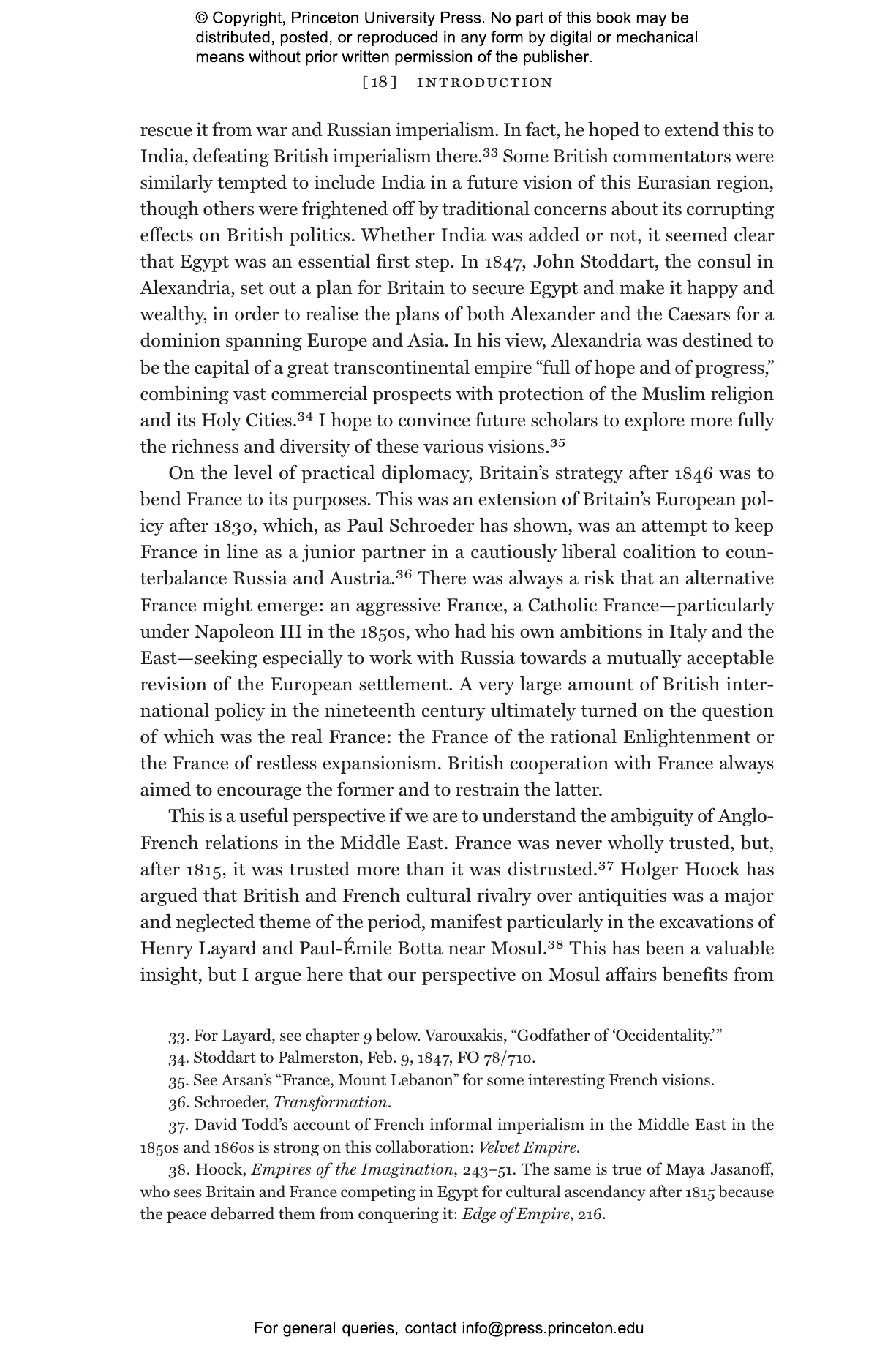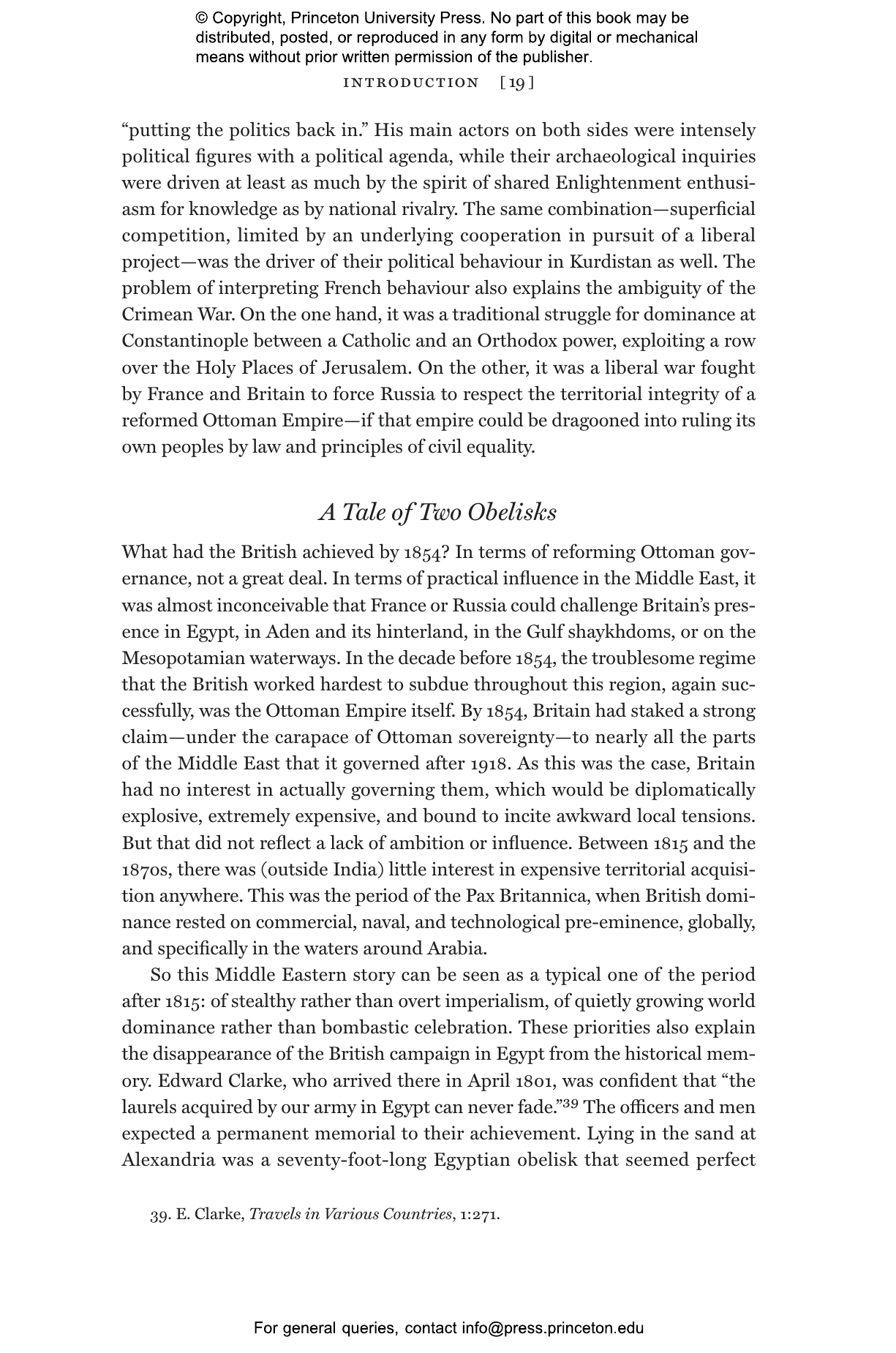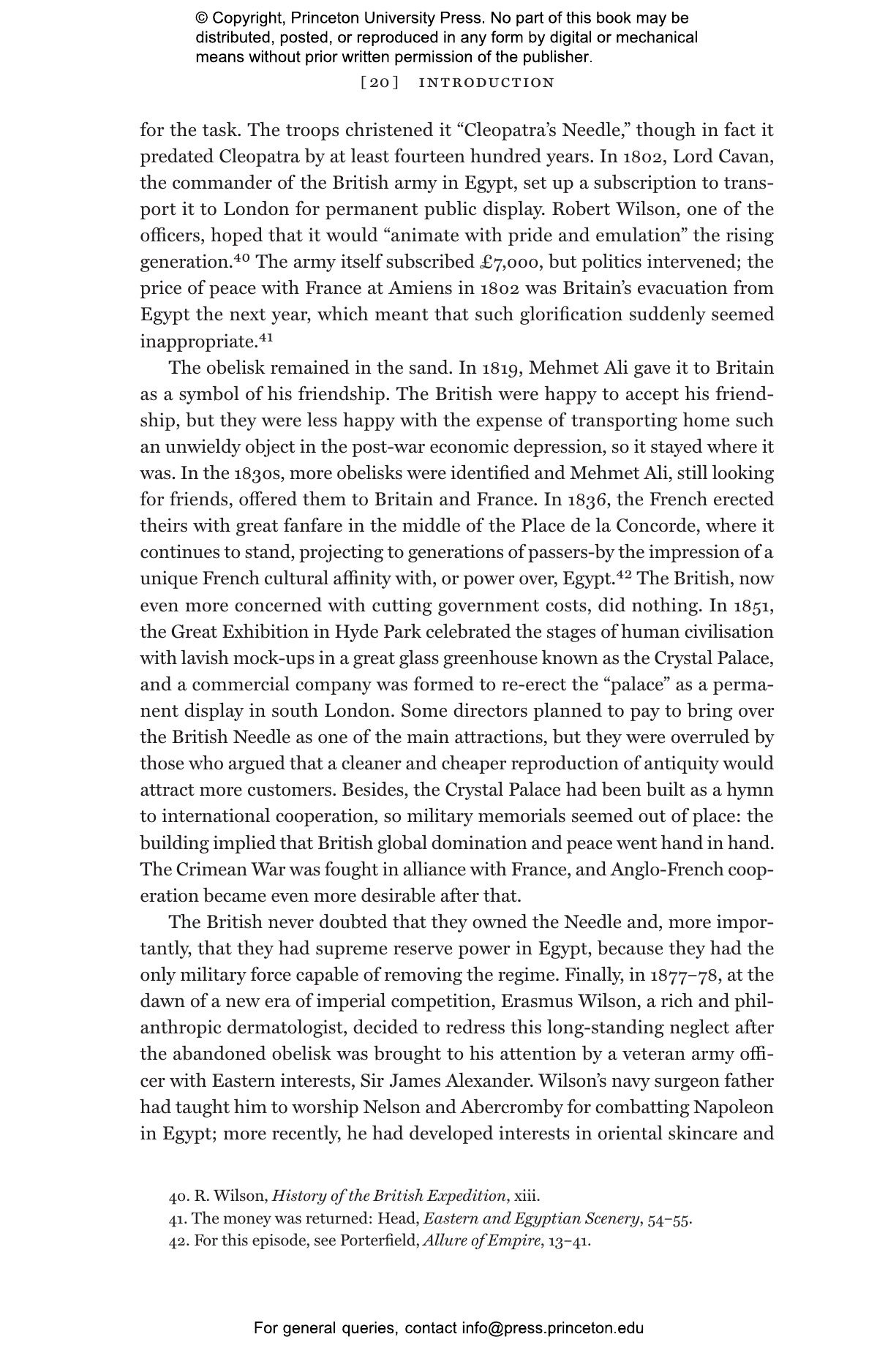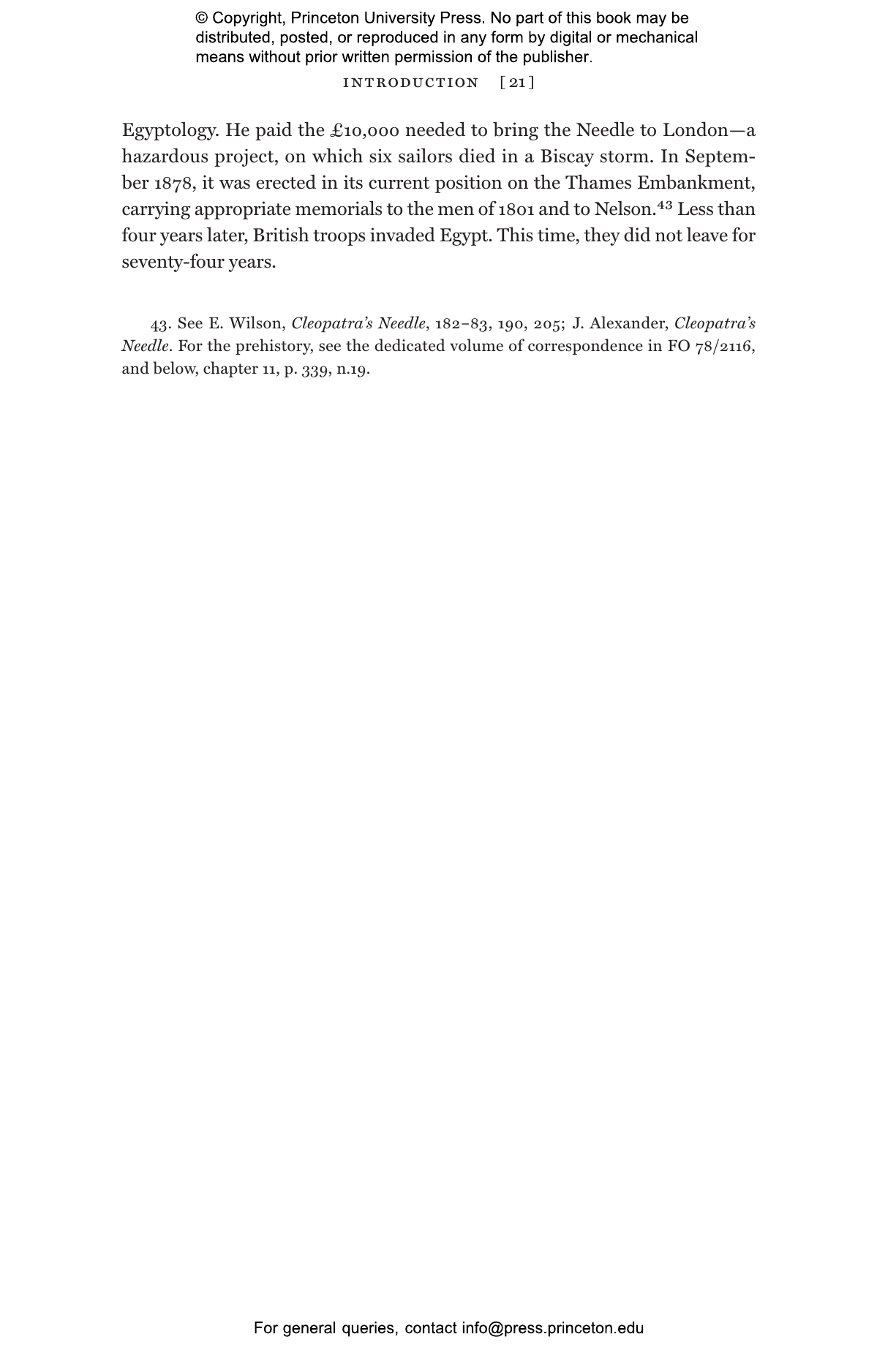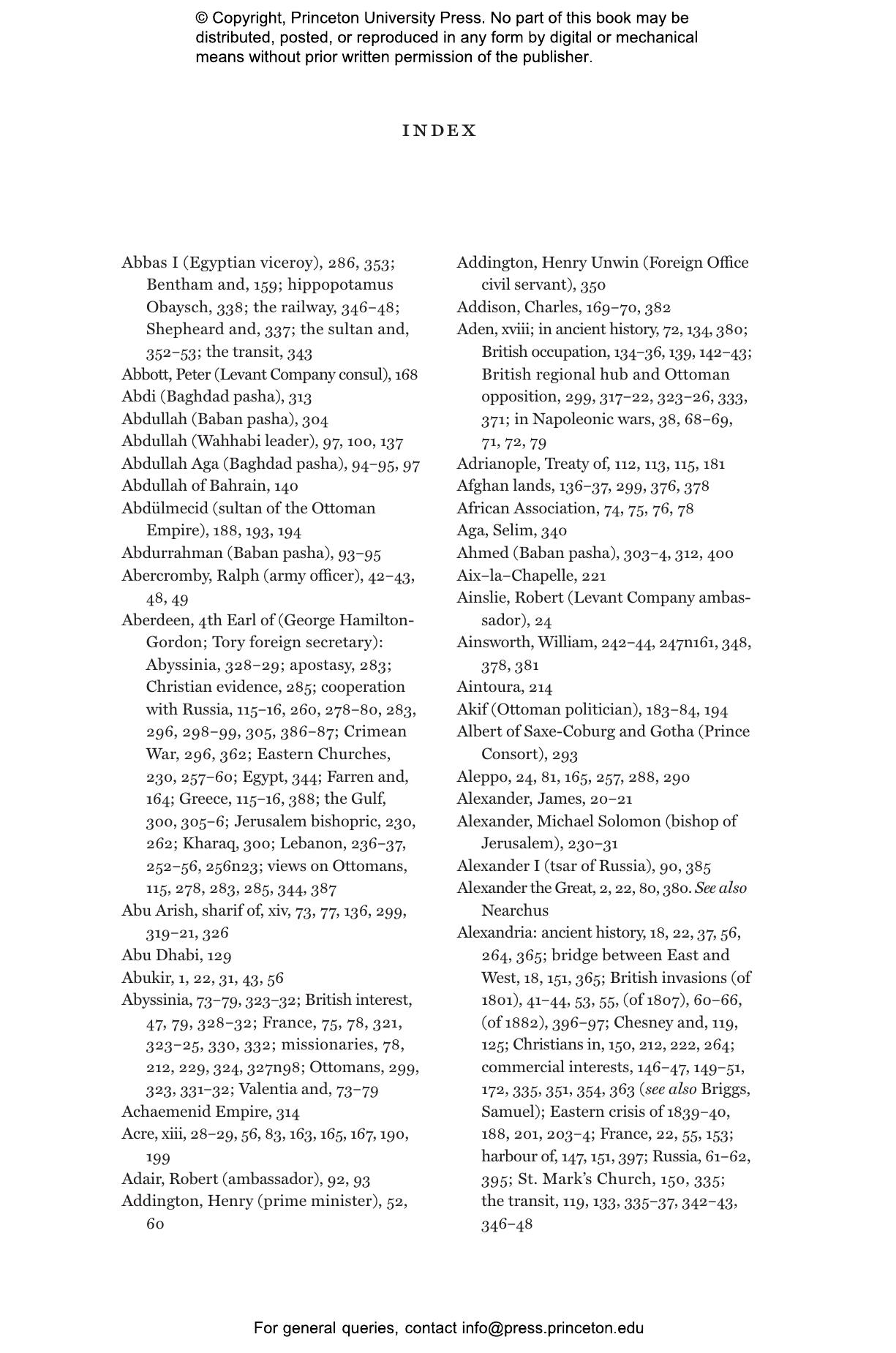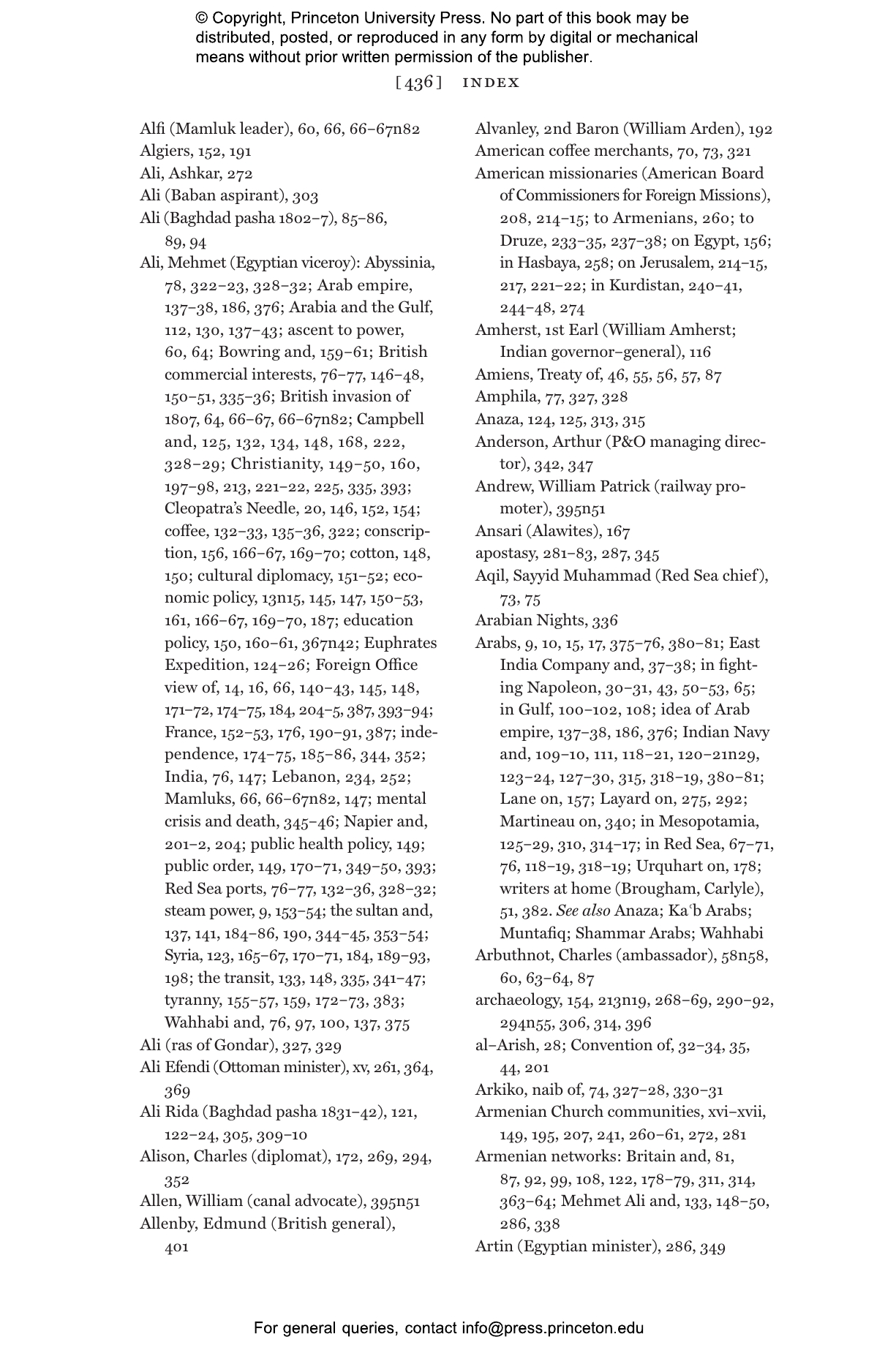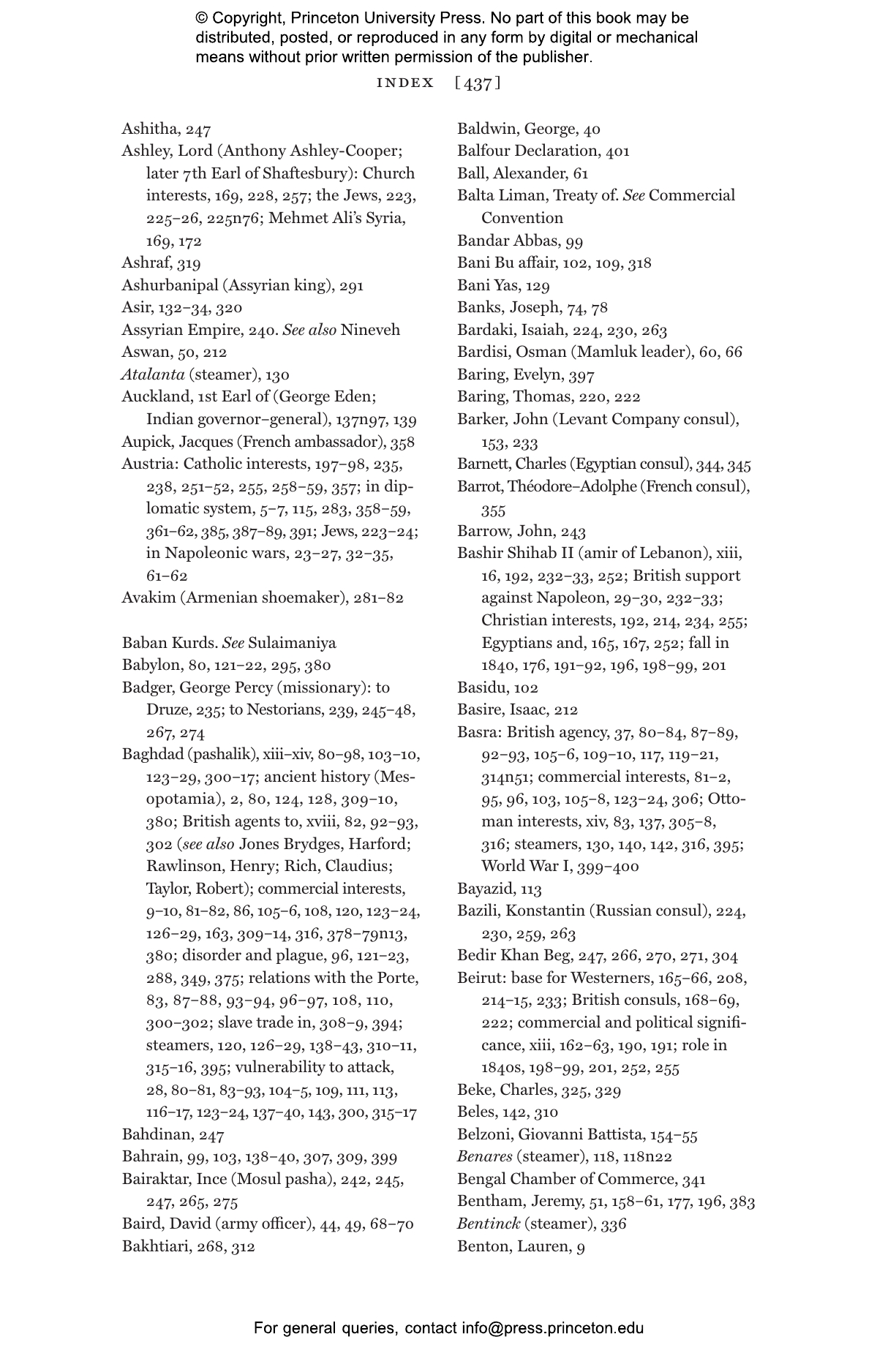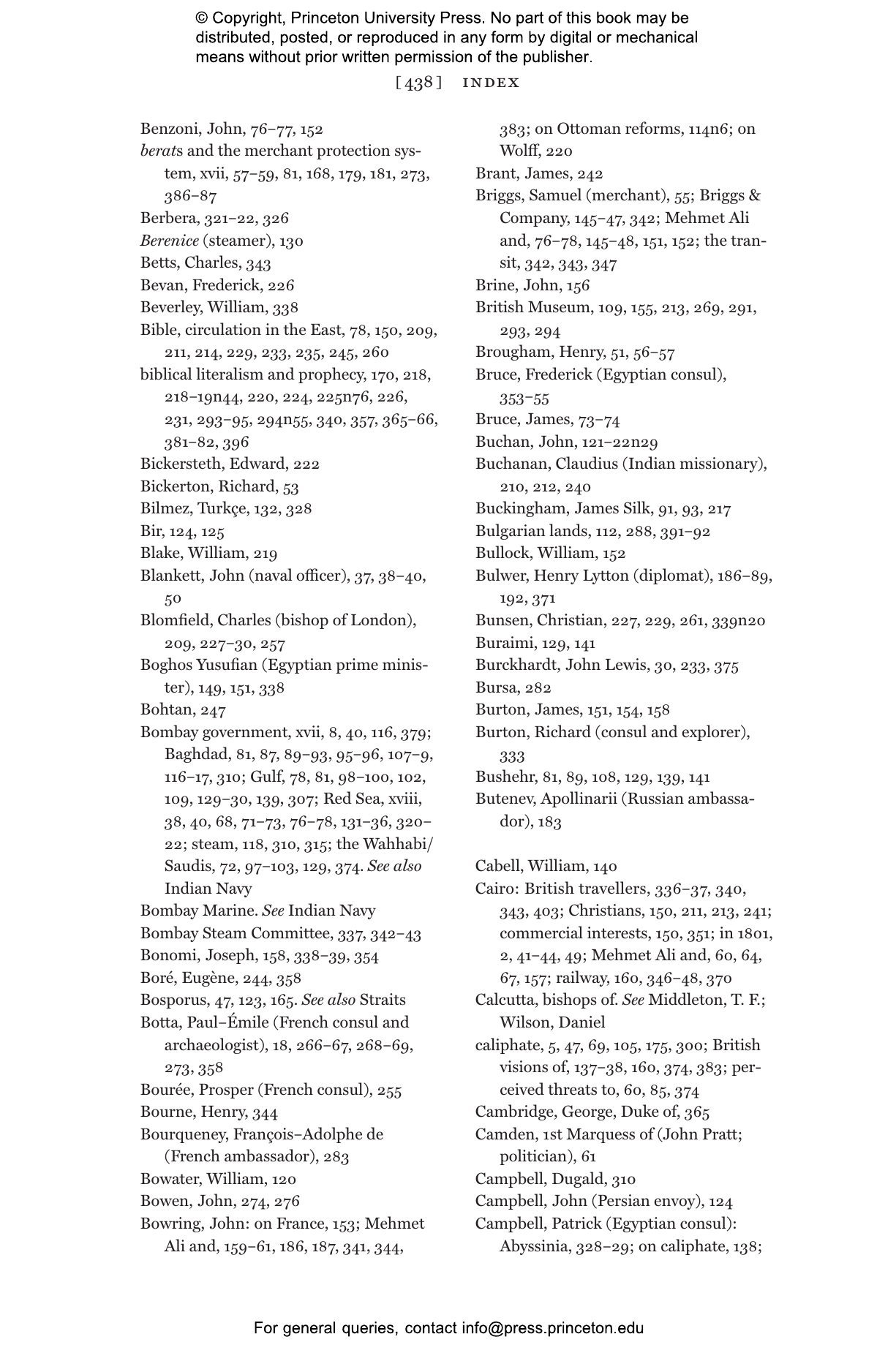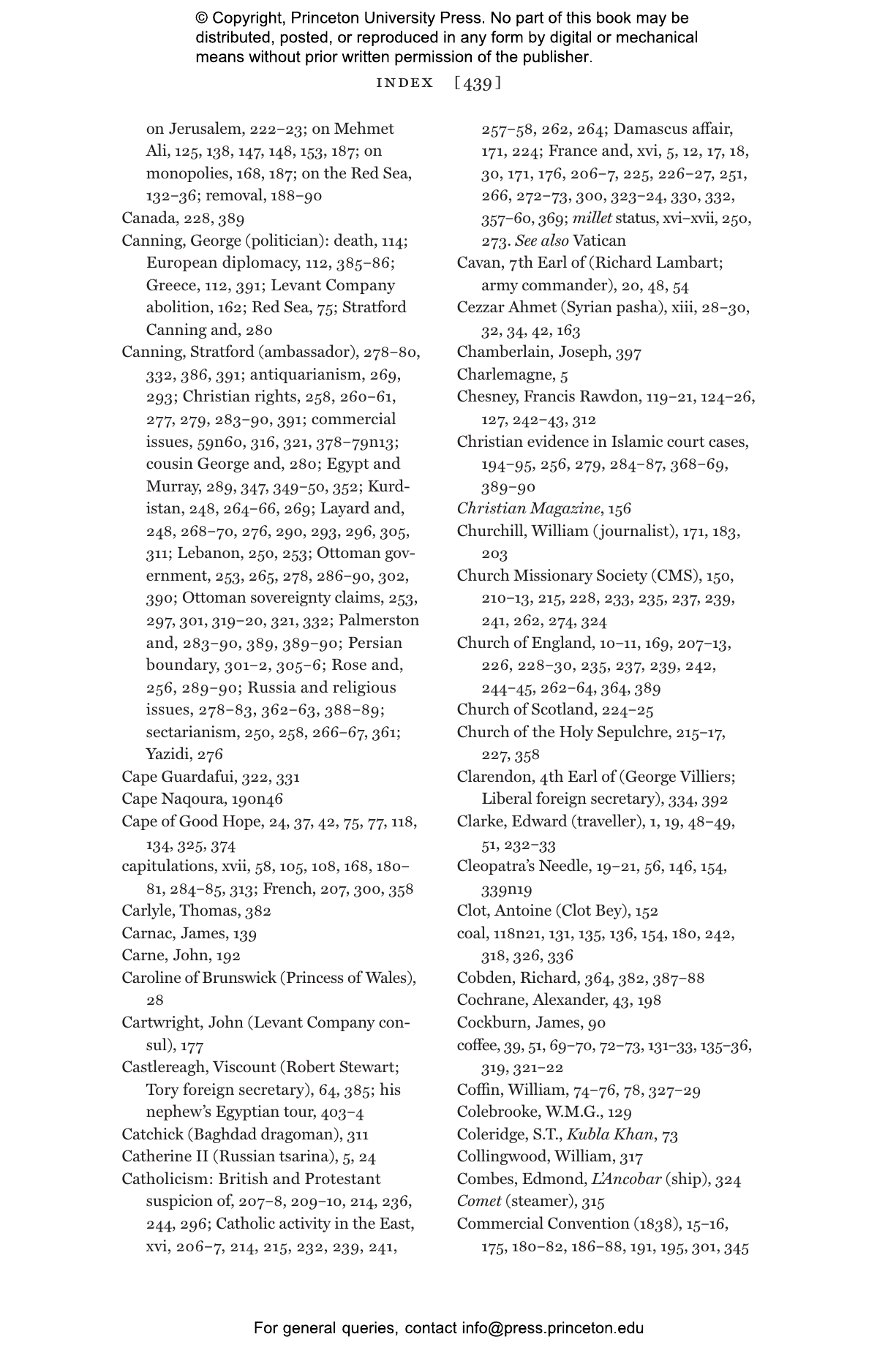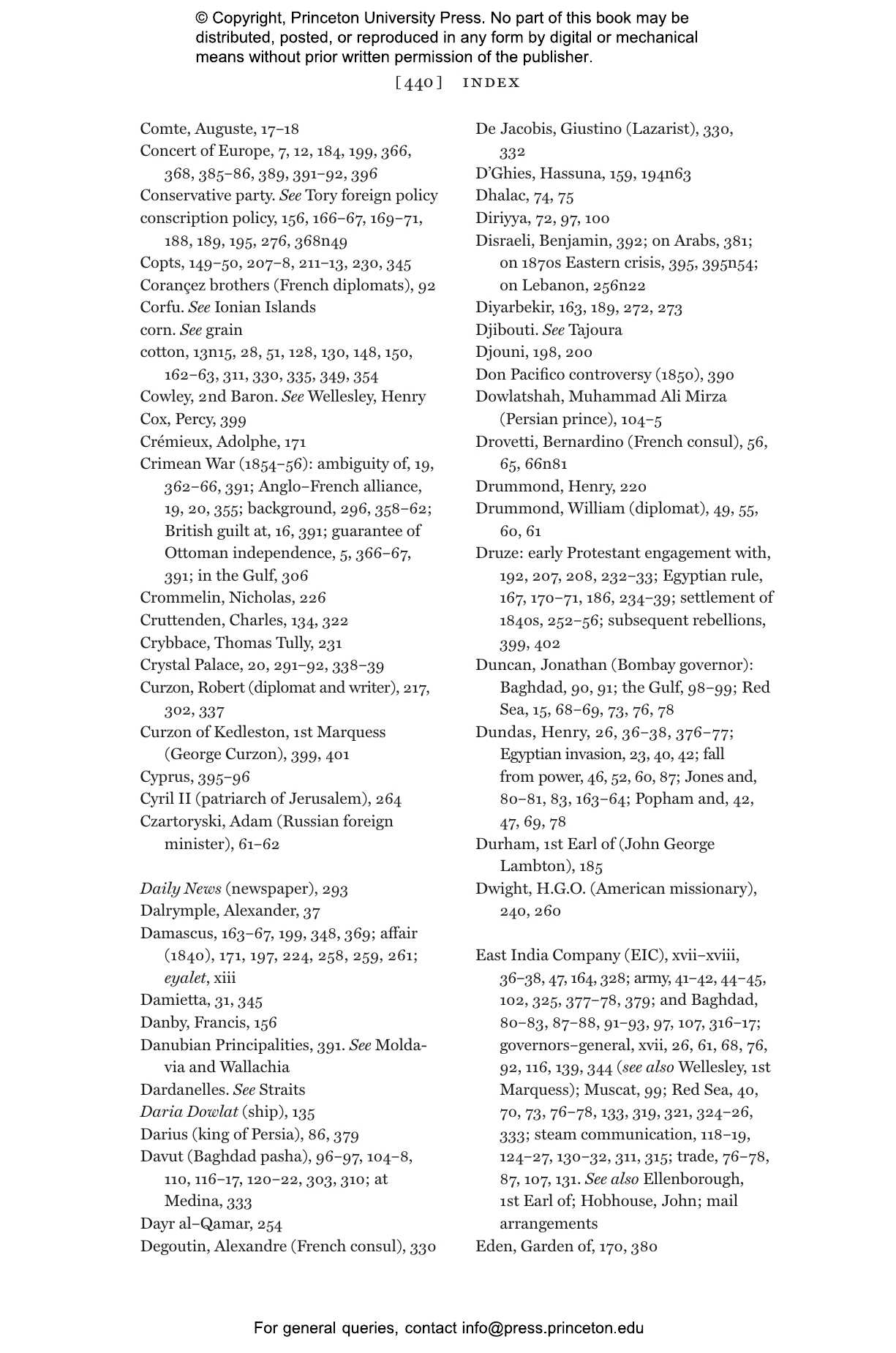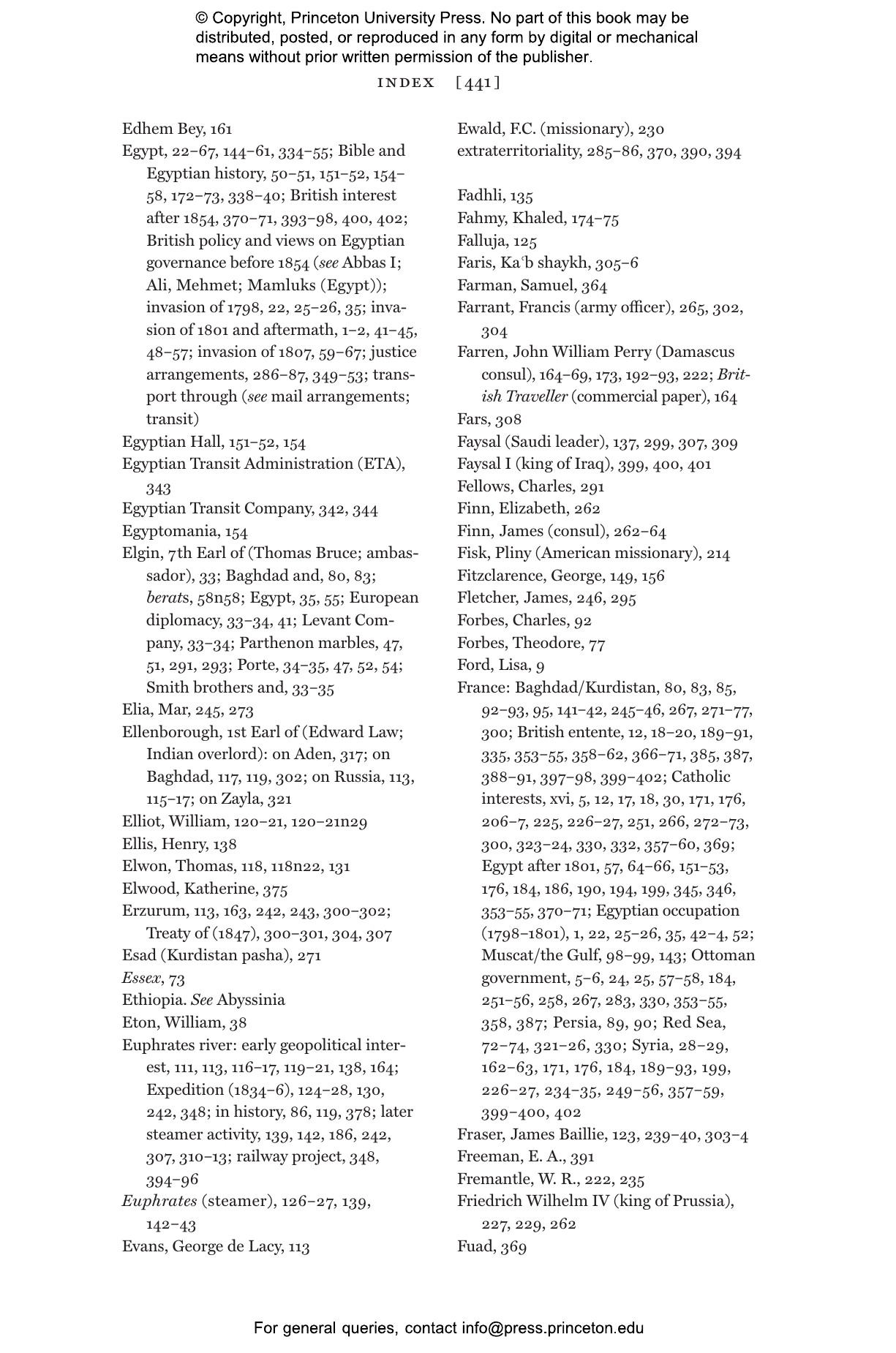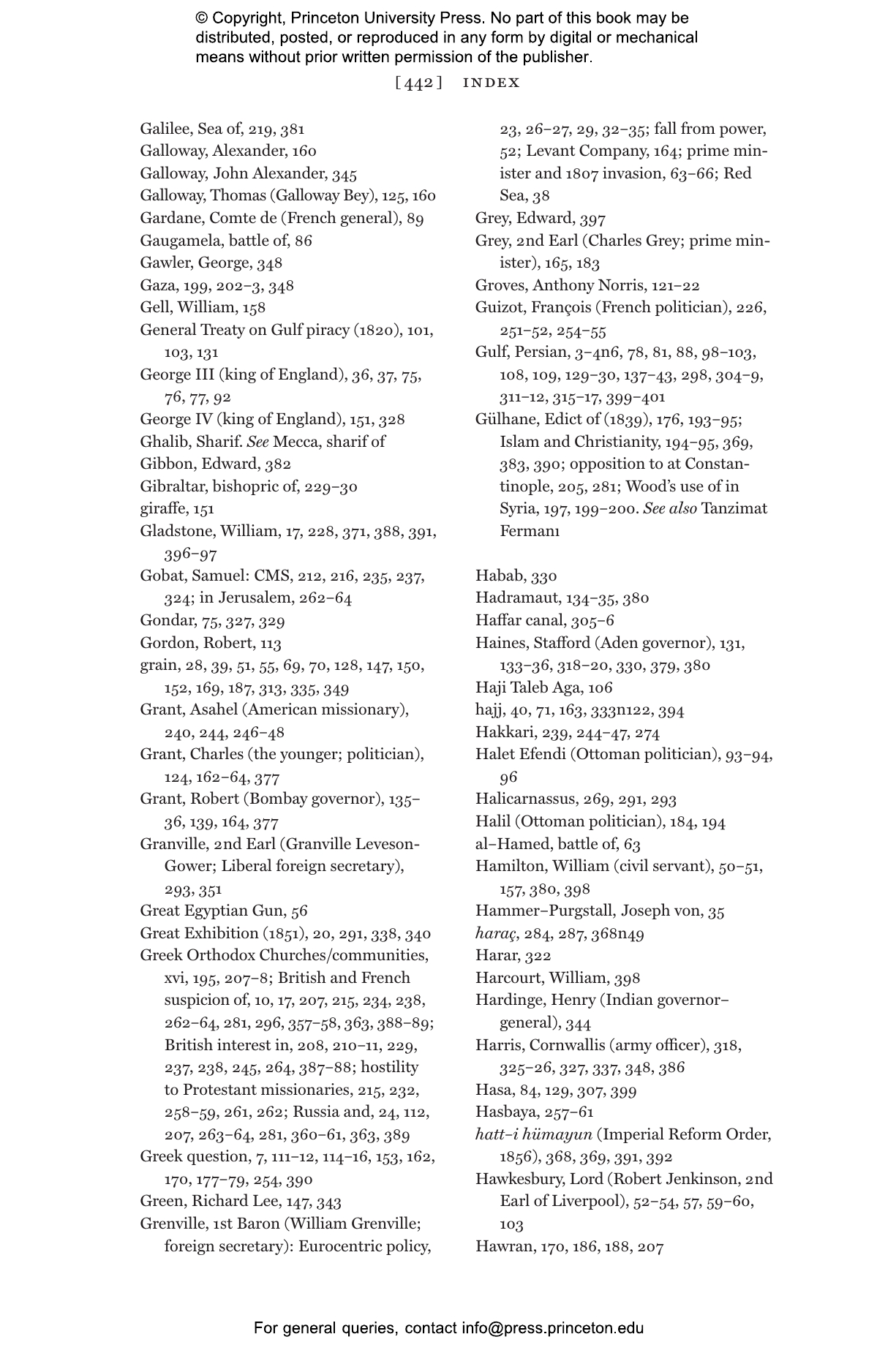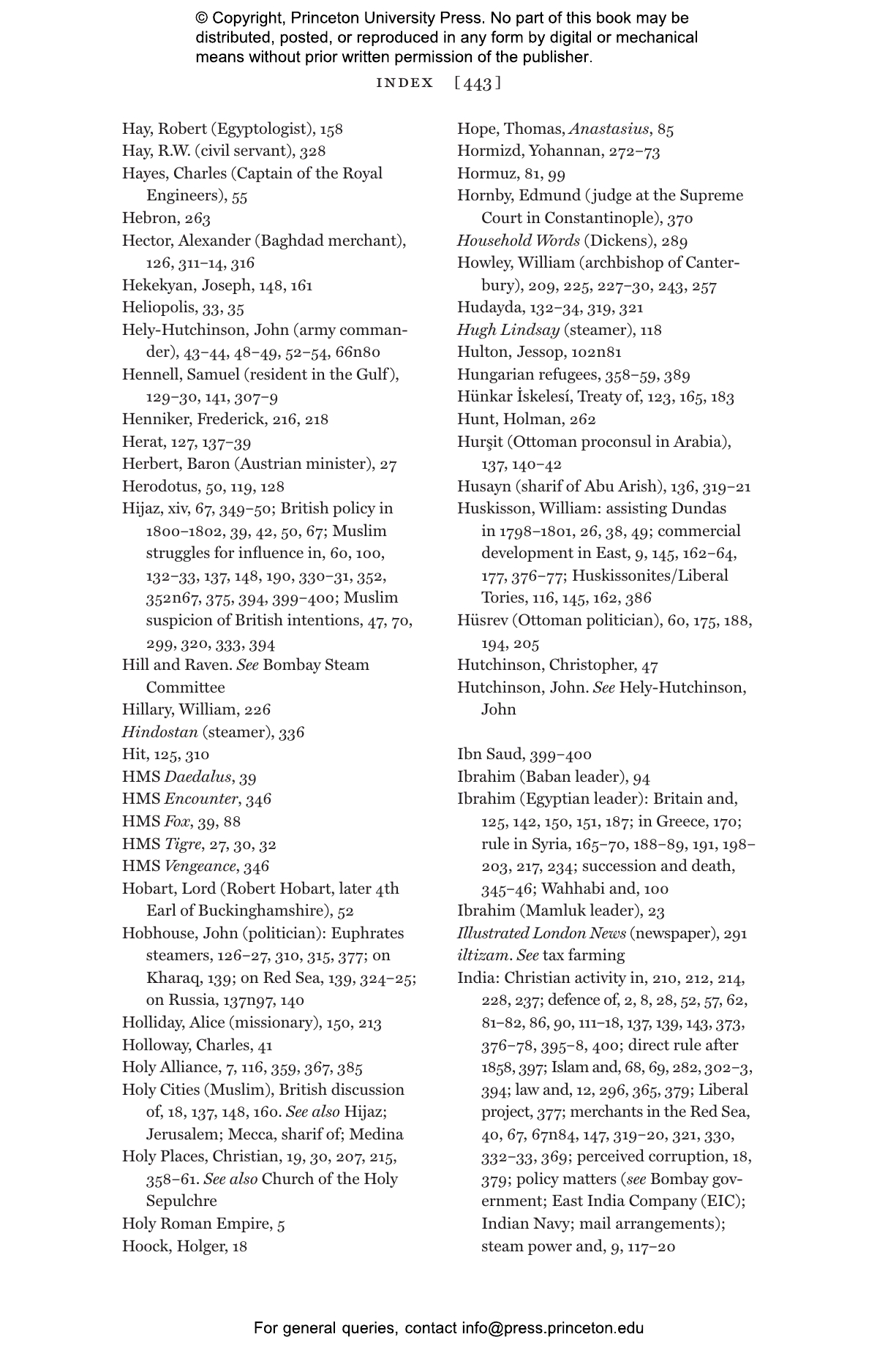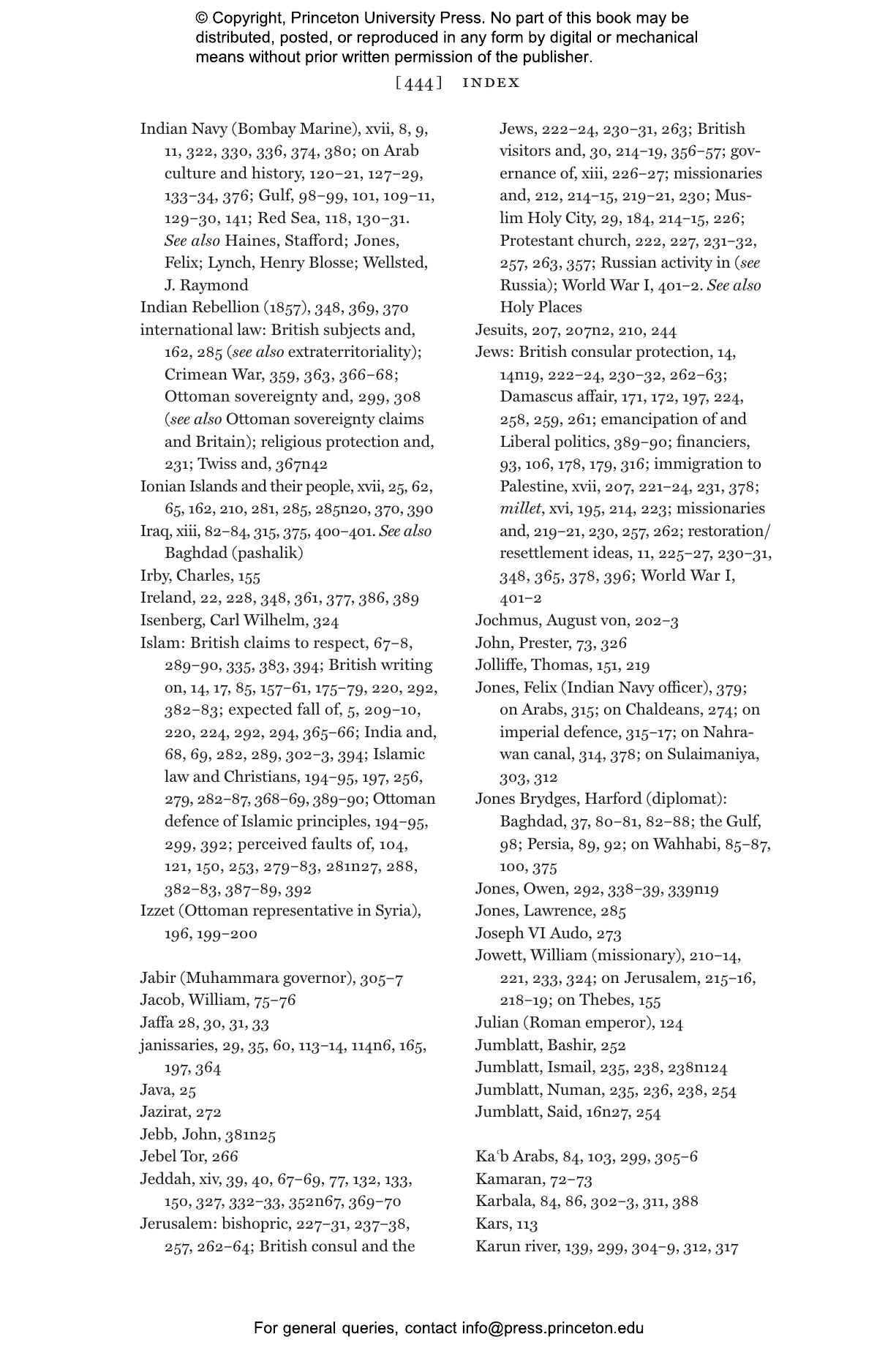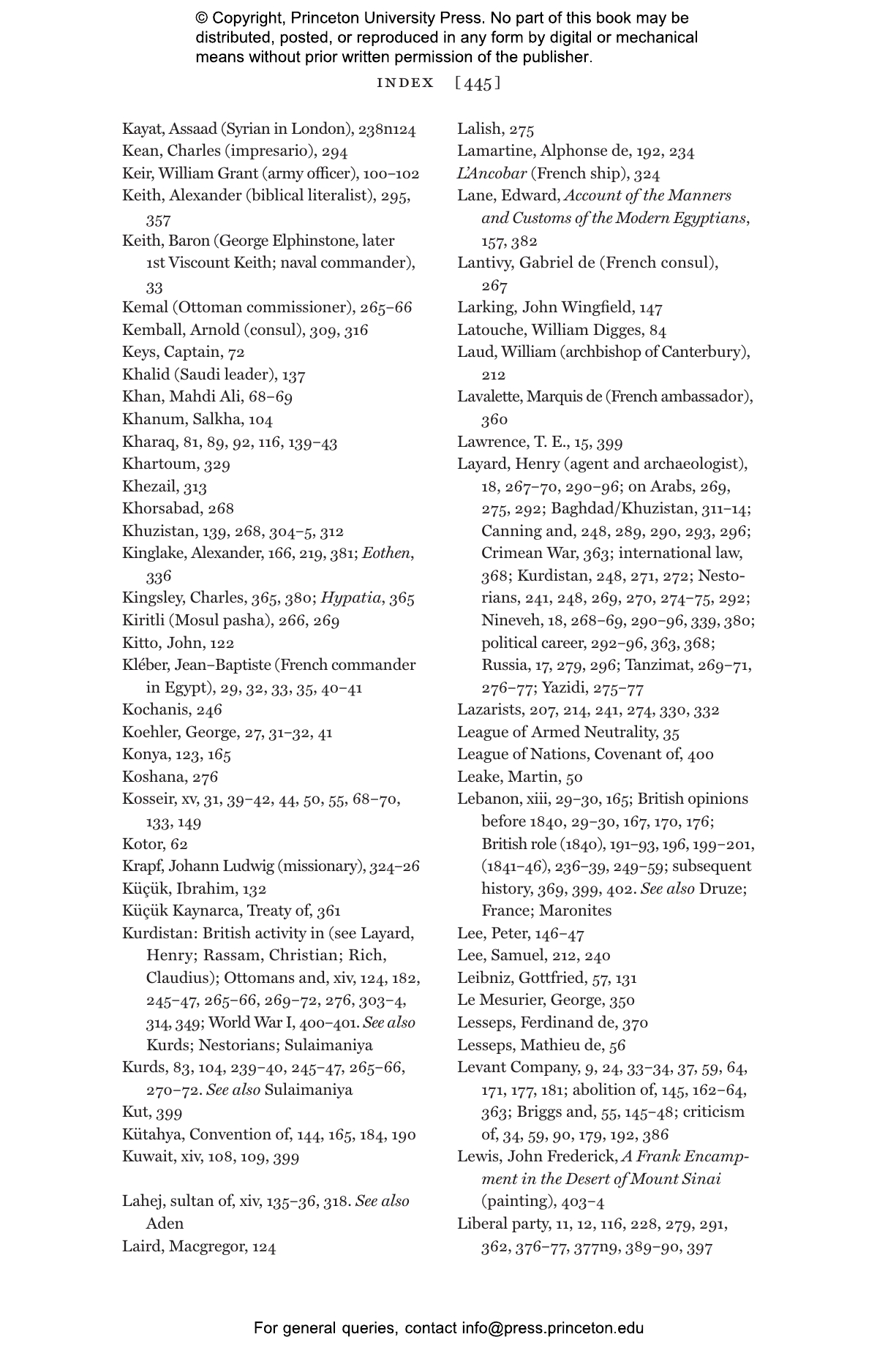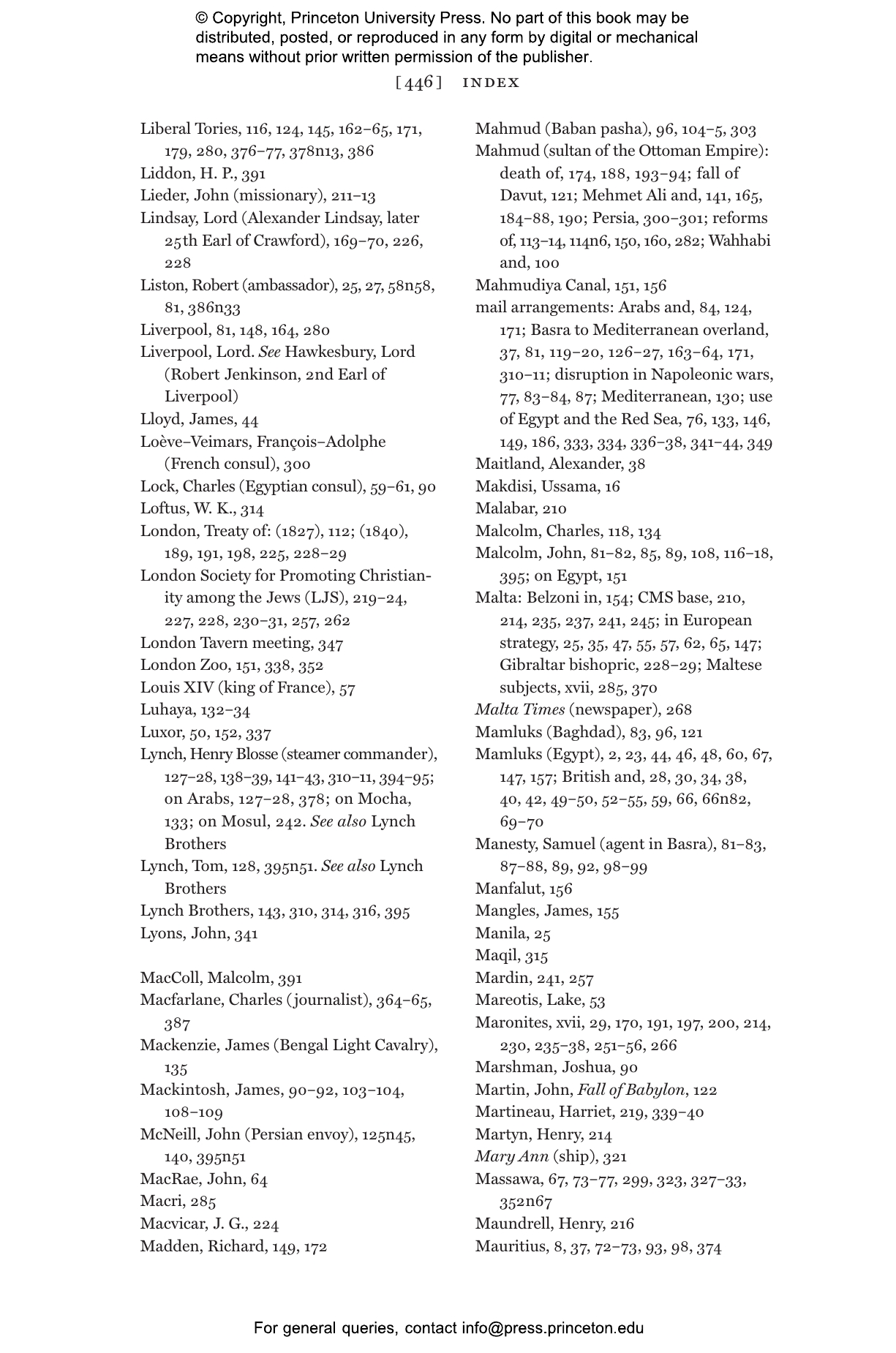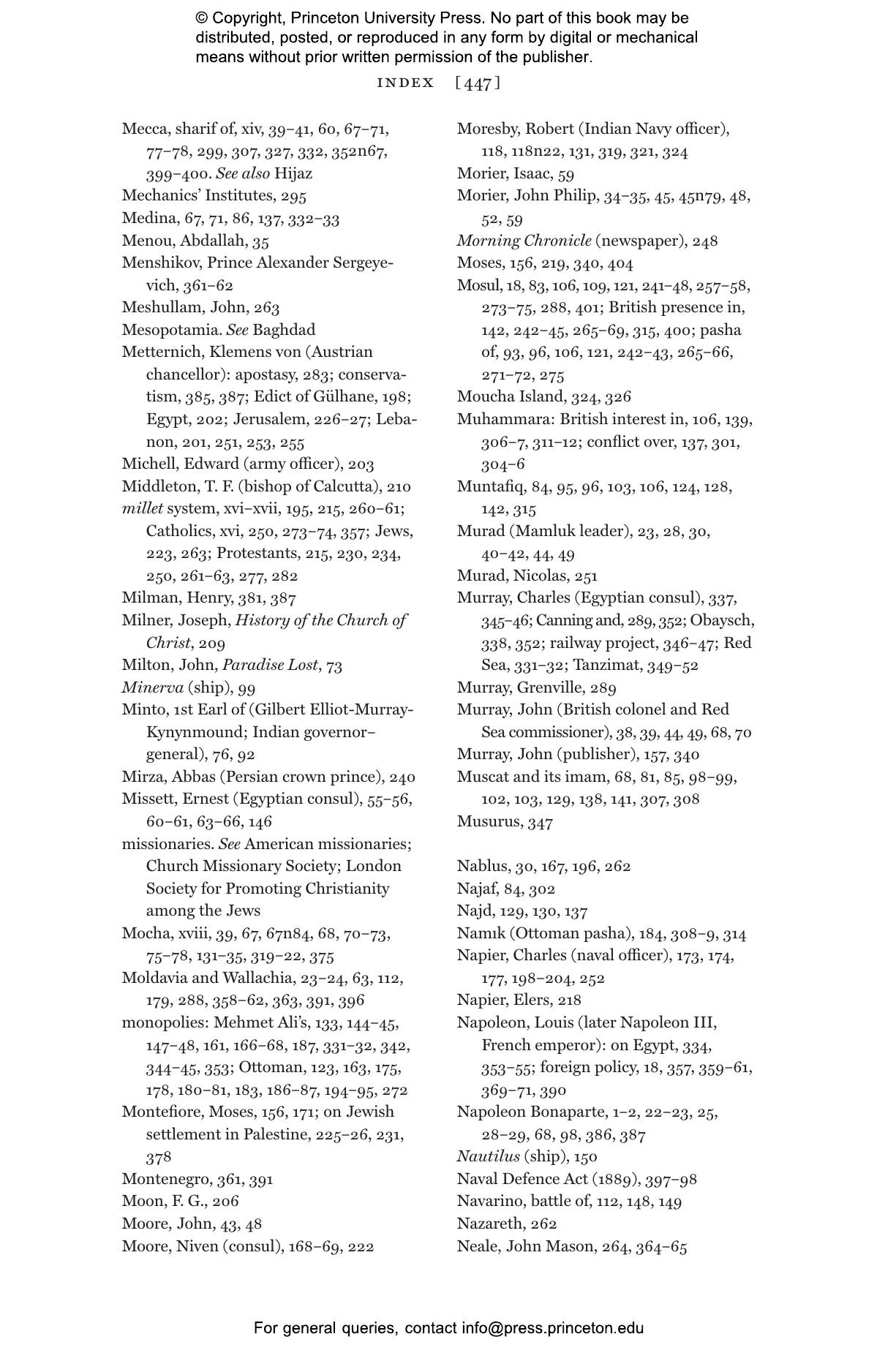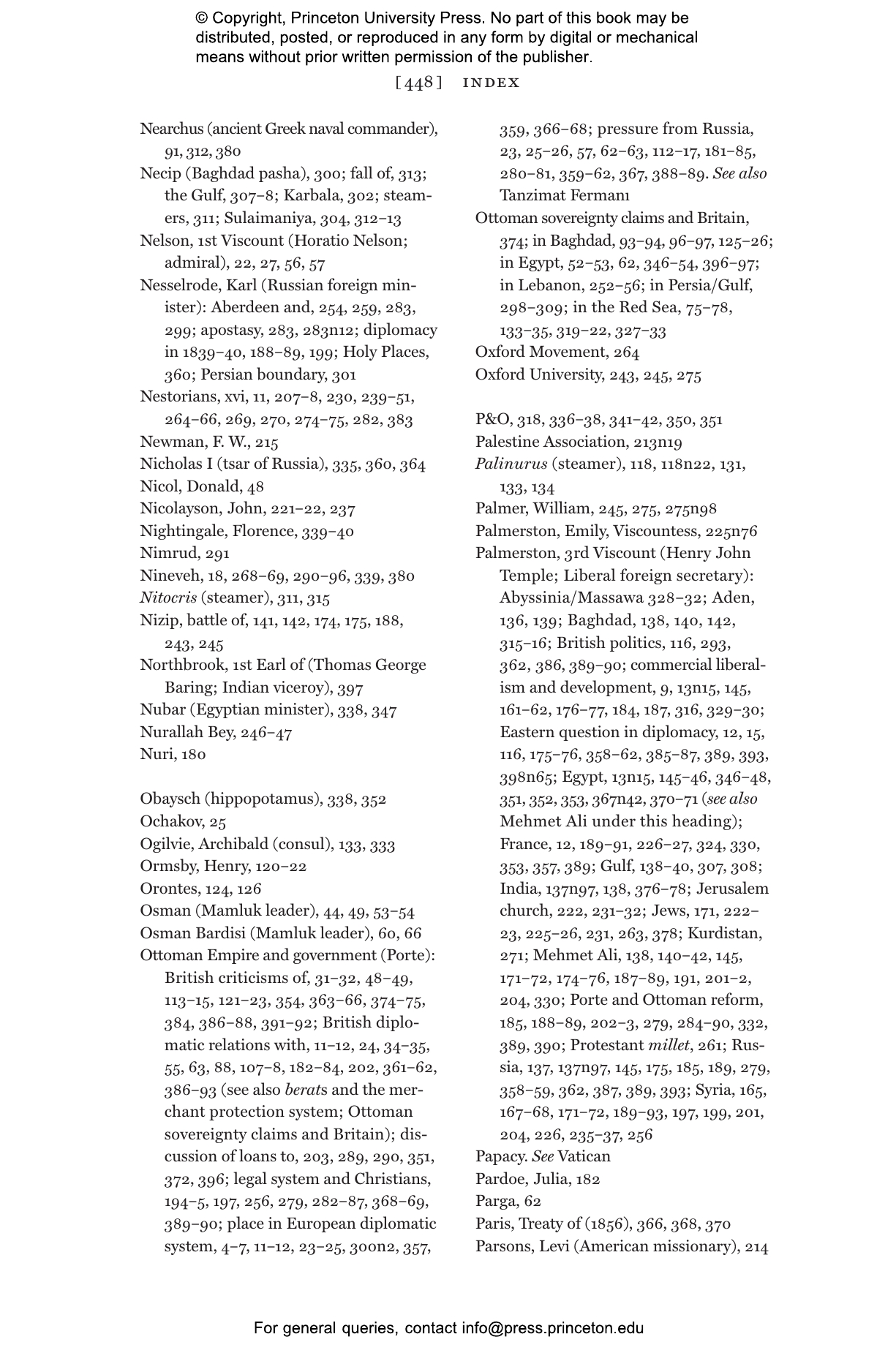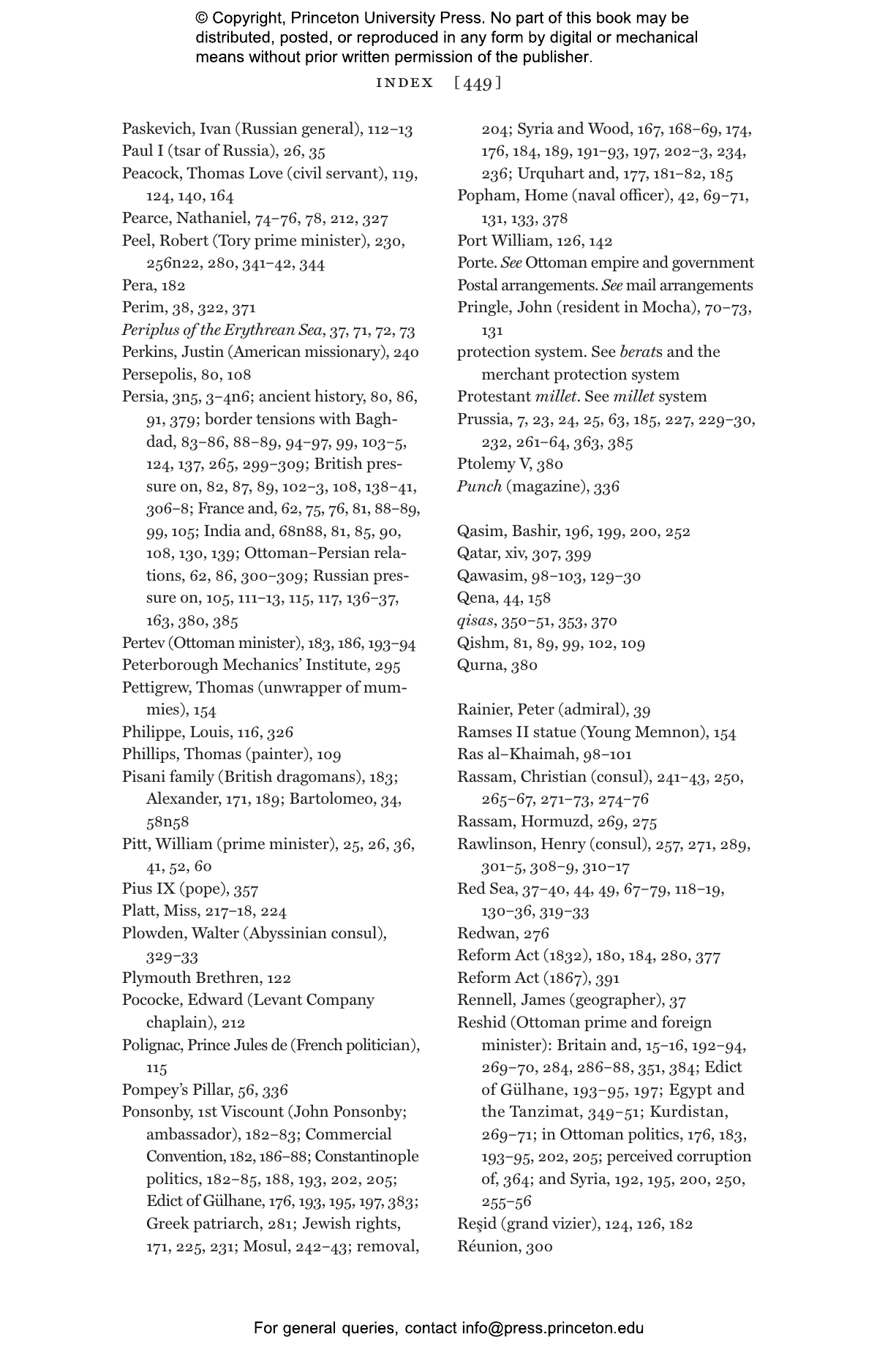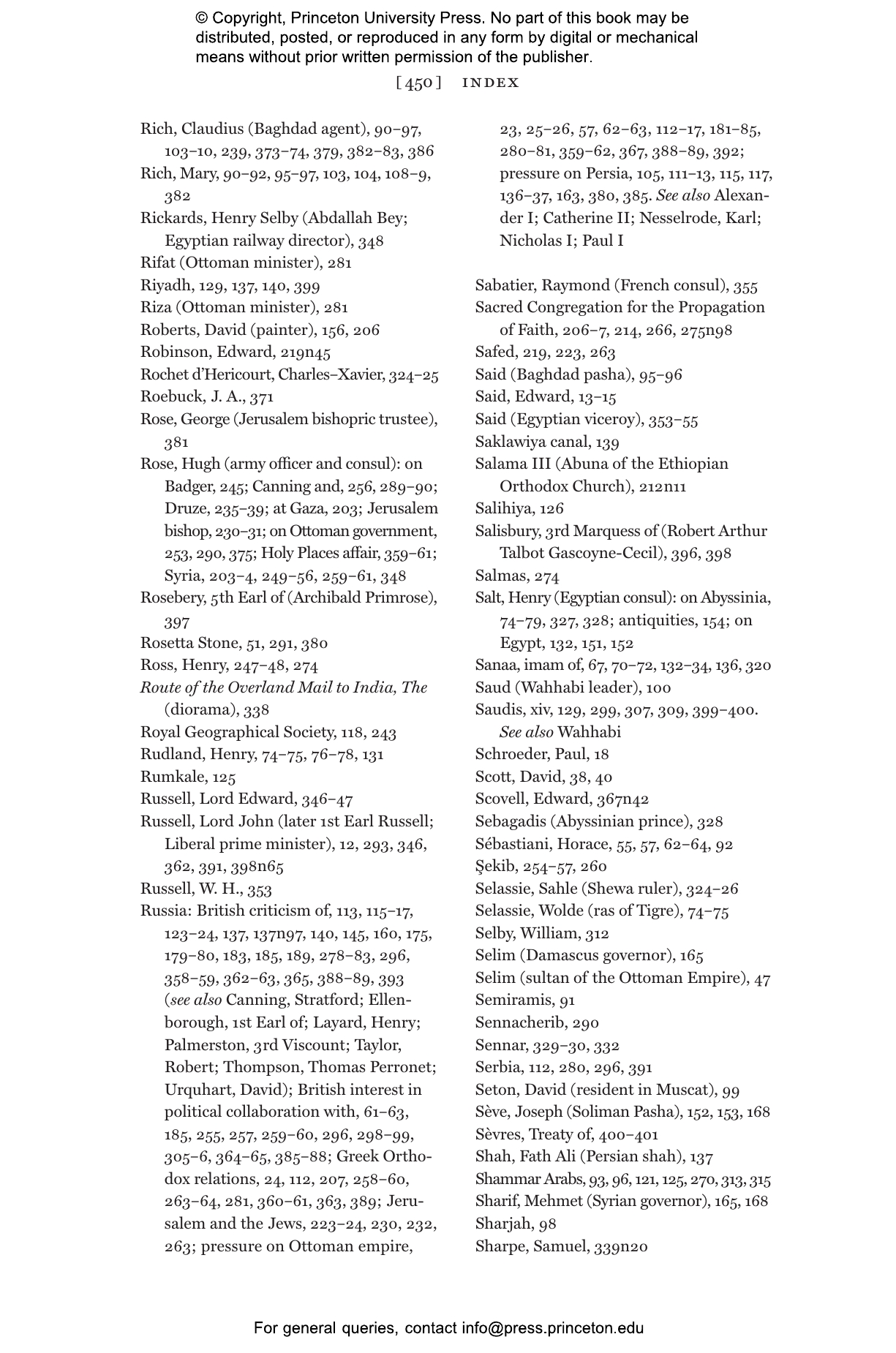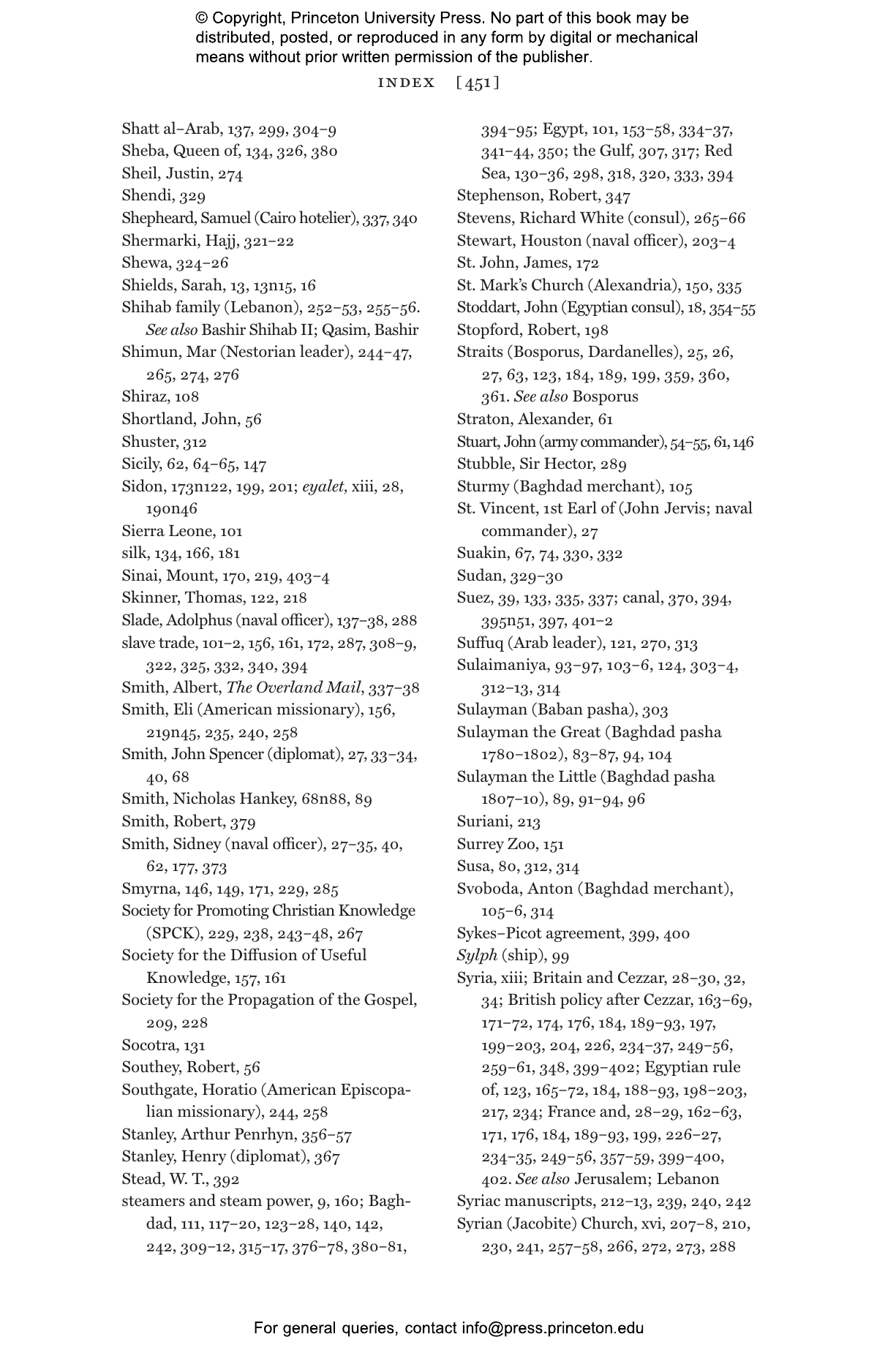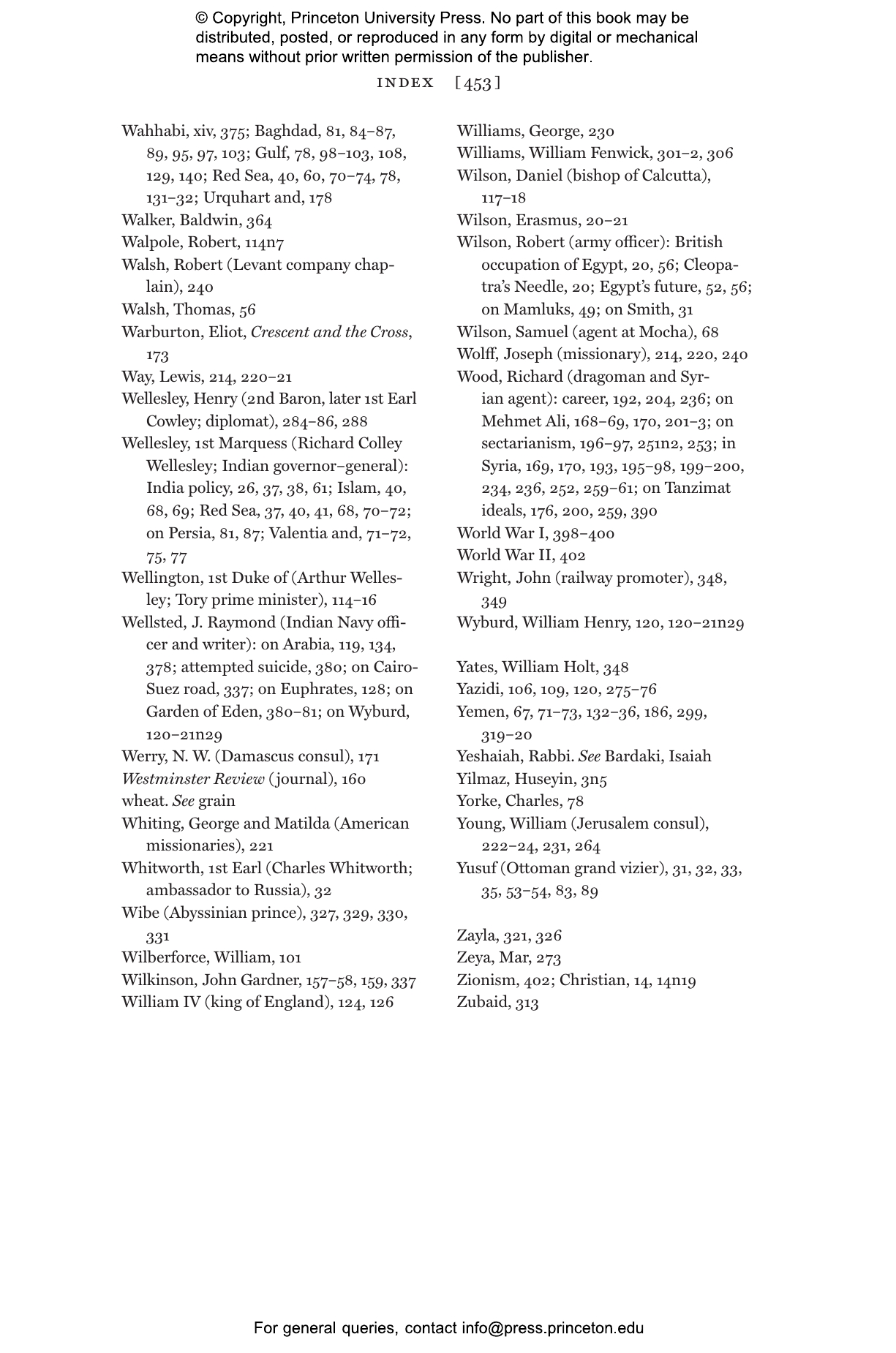Napoleon鈥檚 invasion of Egypt in 1798 showed how vulnerable India was to attack by France and Russia. It forced the British Empire to try to secure the two routes that a European might use to reach the subcontinent鈥攖hrough Egypt and the Red Sea, and through Baghdad and the Persian Gulf. Promised Lands is a panoramic history of this vibrant and explosive age.
Charting the development of Britain鈥檚 political interest in the Middle East from the Napoleonic Wars to the Crimean War in the 1850s, Jonathan Parry examines the various strategies employed by British and Indian officials, describing how they sought influence with local Arabs, Mamluks, Kurds, Christians, and Jews. He tells a story of commercial and naval power鈥攂oosted by the arrival of steamships in the 1830s鈥攁nd discusses how classical and biblical history fed into British visions of what these lands might become. The region was subject to the Ottoman Empire, yet the sultan鈥檚 grip on it appeared weak. Should Ottoman claims to sovereignty be recognised and exploited, or ignored and opposed? Could the Sultan鈥檚 government be made to support British objectives, or would it always favour France or Russia?
Promised Lands shows how what started as a geopolitical contest became a drama about diplomatic competition, religion, race, and the unforeseen consequences of history.
Jonathan Parry is professor of modern British history at the University of Cambridge and a fellow of Pembroke College. His books include The Politics of Patriotism: English Liberalism, National Identity, and Europe, 1830–1886. He is a frequent contributor to the London Review of Books. Twitter @JonParryHis
"Parry’s magisterial history of Britain’s arrival in Ottoman lands relates these lurches from masterstroke to misadventure with mordant precision."鈥擬ichael Ledger-Lomas, The Critic
"Parry’s pen-portraits of a range of British politicians, diplomats, merchants and men on the spot are marvellous; the book is so rich in detail that its story is sometimes hard to follow. But his main contention, that by the outbreak of the Crimean War in 1854 Britain had staked a claim to everywhere it ended up ruling after 1918, stacks up. And this tale of how a rising trading power exploited greed to acquire insidious political influence is worth reading for its relevance today."鈥擩ames Barr, Engelsberg Ideas
"Handsomely produced. . . . [and] deeply instructive."鈥擩eremy Black, New Criterion
"The author provides a tremendously readable synthesis of scholarly studies of this sectarian and arcane field."鈥擲ean Sheehan, Scottish Left Review
"An excellent resource on British imperial history in the Middle East, host to international rivalries and birthplace of past civilizations and world religions."鈥擥. M. Stearns, Choice
"[Promised Lands] successfully fills the gap in scholarship about the crucial time period and events that eventually set the stage for the making of the modern, twentieth century Middle East. . . . The thoroughness of its storytelling serves as a strong reflection of Perry鈥檚 meticulous research. Its broad and deep history is an important contribution to the field. Enriched by an impressive narration of complex historical events, Promised Lands is highly recommended."鈥擫eila Fawaz, Journal of Interdisciplinary History
"Promised Lands offers a rich and illuminating context for how the Eastern Question came to matter in British political, cultural, and diplomatic life."鈥擬ichelle Tusan, Journal of Modern History
"[An] exciting contribution that connects the mentality of British actors in the Middle East with British geopolitical engagement in the Ottoman Empire during the first half of the long nineteenth century. . . . Jonathan Parry has written a brilliant book that engagingly tells and arranges the stories of nearly forgotten areas and individuals."鈥擶olfgang Egner, German Historical Institute London Bulletin
“Parry provides a lucid and compelling account of Britain’s engagement with the Ottoman Empire, from the British response to Napoleon’s invasion of Egypt to the outbreak of the Crimean War. Promised Lands is essential reading for historians of the period and indispensable for anyone with an interest in the modern history of the Middle East.”—Anthony Howe, author of Free Trade and Liberal England, 1846–1946
“A wonderfully rich and evocative book that restores crucial but often neglected aspects of British thinking and policy in this region. Promised Lands is an impressive work of scholarship that is likely to become the authoritative account for understanding Britain’s foreign policy in the Middle East during the first half of the nineteenth century.”—Martyn Frampton, author of The Muslim Brotherhood and the West


